Erasmus Student Network 2022 2023 Annual

Report
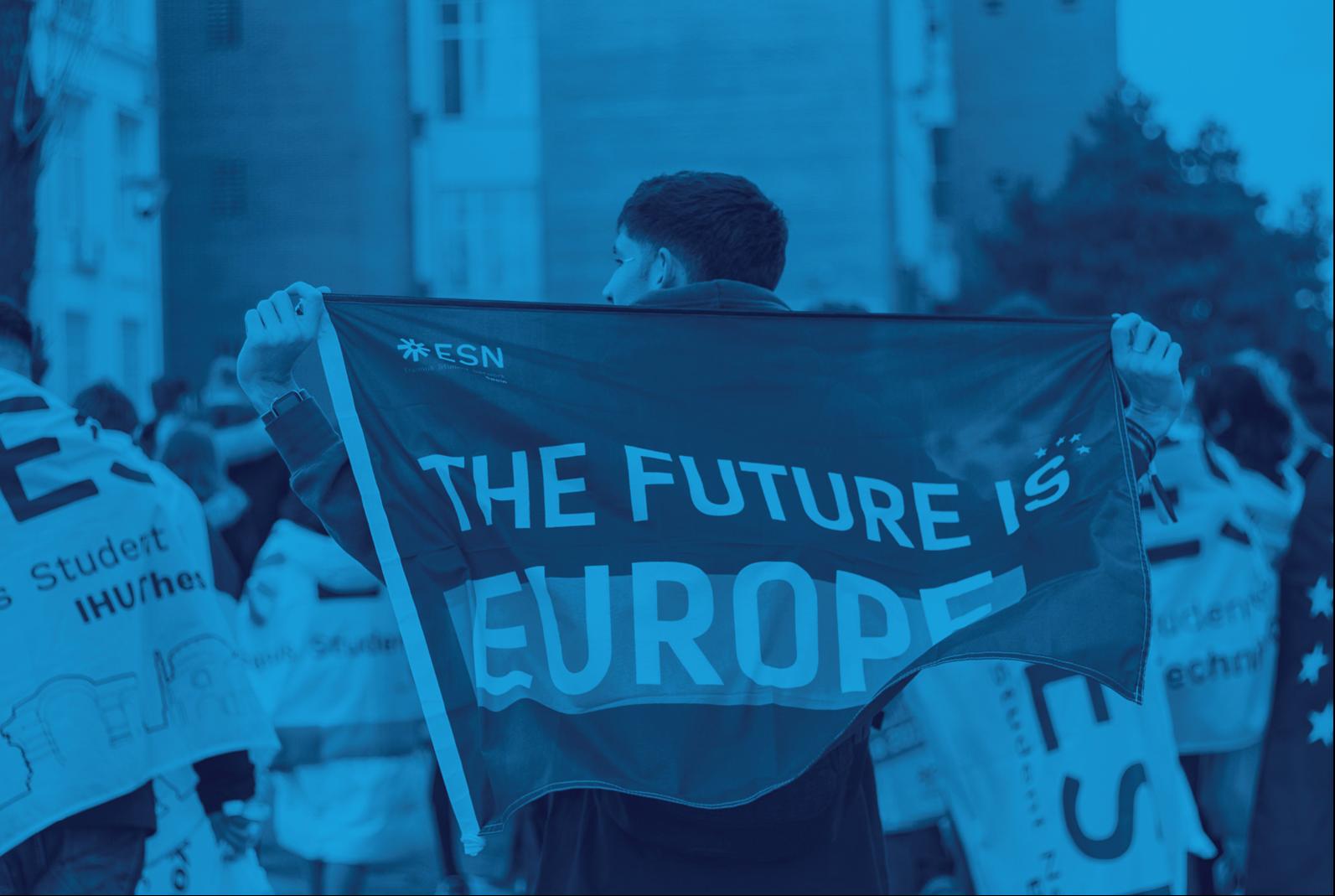
Copyright © 2023 by the Erasmus Student Network AISBL.
All rights reserved.
Erasmus Student Network: Annual Report 2021/2022

Coordinator: Nikolina Đurić, Communication Manager ESN AISBL 2021-2023
Published by: Erasmus Student Network AISBL
Design: Nikolina Đurić, Katarzyna Pasierbiewicz, Jan Hrubý
Editing: Nikolina Đurić
Contributors: Nikolina Đurić, Wim Gabriels, Juan Rayón González, Ayberk Yavuz, Paul Sullivan
Cover photography: Erasmus Student Network Italia
2 Annual Report 2022/2023
ESN’s contribution is crucial to the success of our work –be it the European Year or the Erasmus+ programme itself.
And we are grateful for your incredible effort and passion.
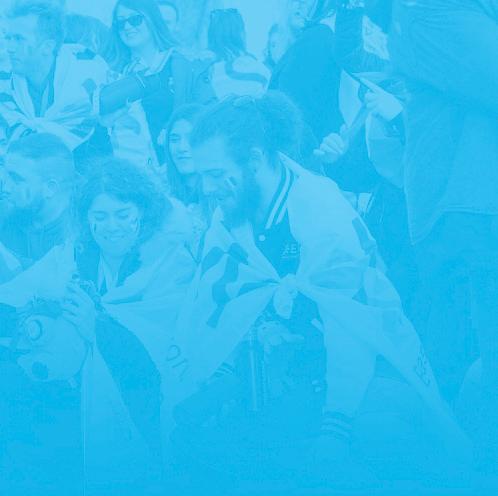
3
I am not sure we would be talking about an Erasmus Generation without you.
Mariya Gabriel, former Commissioner for Innovation, Research, Culture, Education and Youth
Foreword by Juan Rayón González , President 7

4 Annual Report 2022/2023 Foreword Highlights ESN in the Media About Us
Table of Contents
Three New CountriesJoin the Network! Erasmus Generation meets in Romania Erasmus Destination of the Year Improving the Implementation of Erasmus+ ESNsurvey and Student Data Inclusive & Accessible Student Mobility Mobilising Young People ESN Supporting Global Mobility Digitalisation and Skills in Learning Mobility Towards a Greener Mobility Year in Review 9 10 11 12 14 16 18 19 20 21 22 Press Clippings Overview of Media Activity 27 28 Mission & Principles Vision & Strategic Priorities Values Structure Finance ESN in Numbers 31 32 33 34 35 36
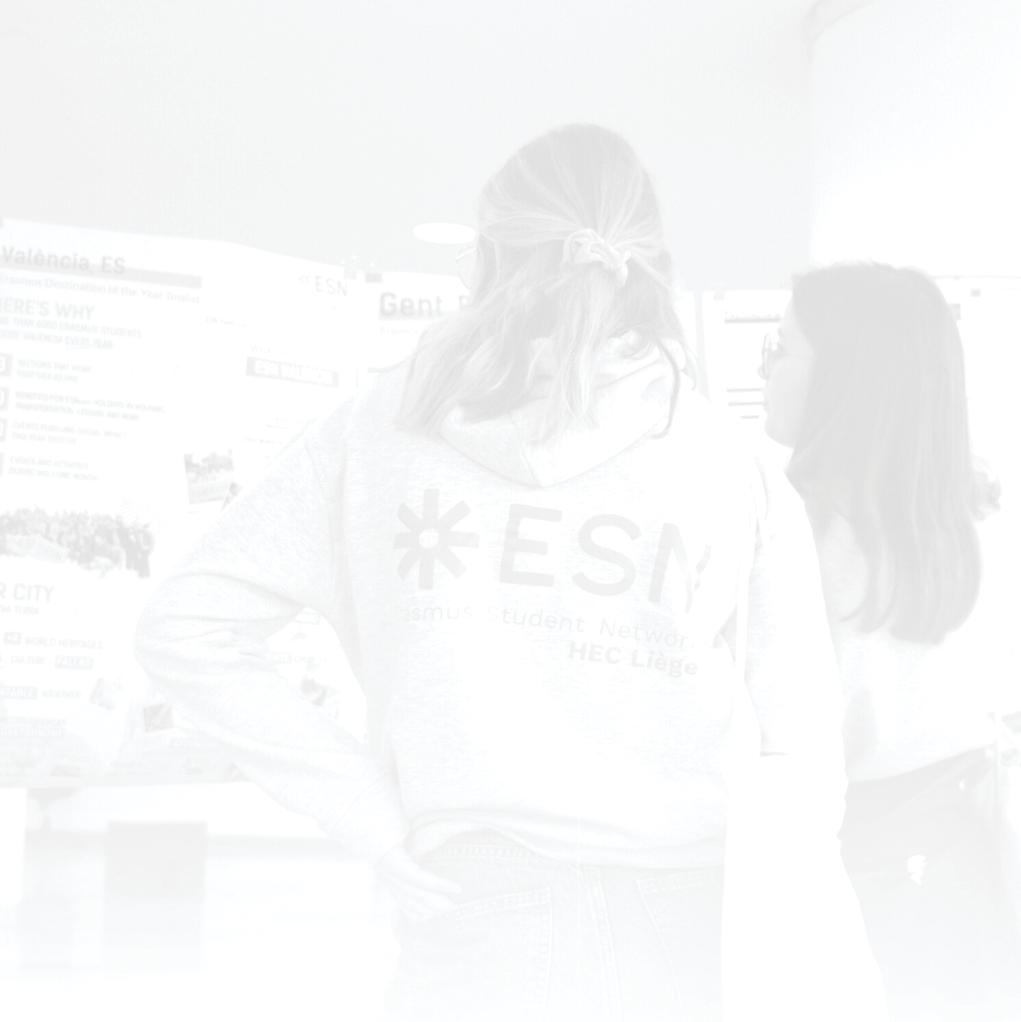
5 Table of Contents
People ESN as a Member Institutional Partners ESN & Public Funding Commercial Partners Marketing Cooperation 39 40 41 42 44 International Board 2022/2023 ESN Secretariat International Board Supporters National Organisations 47 48 50 52
External Relations
Foreword
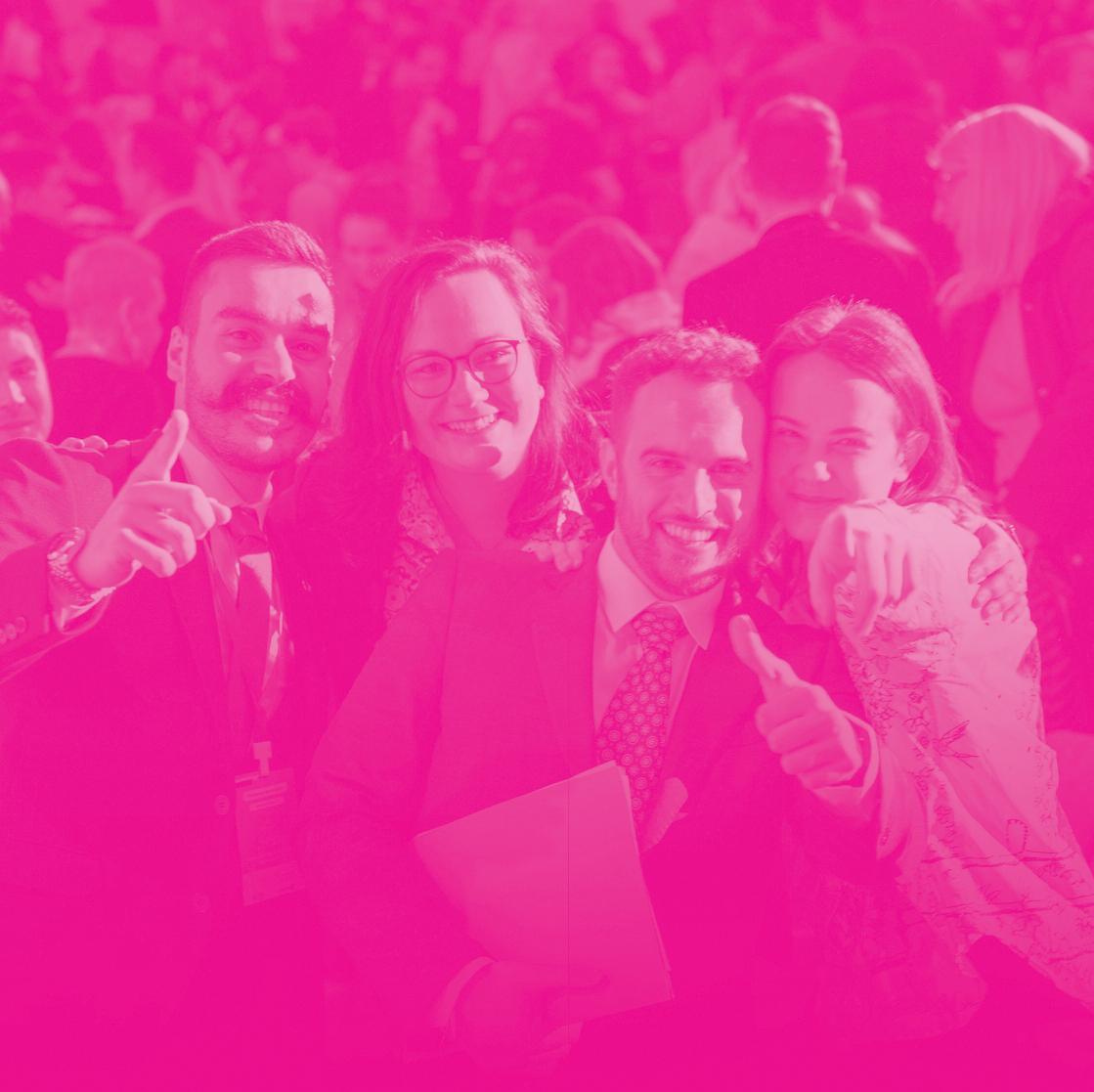
6 Annual Report 2022/2023
Juan Rayón González
President of the Erasmus Student Network
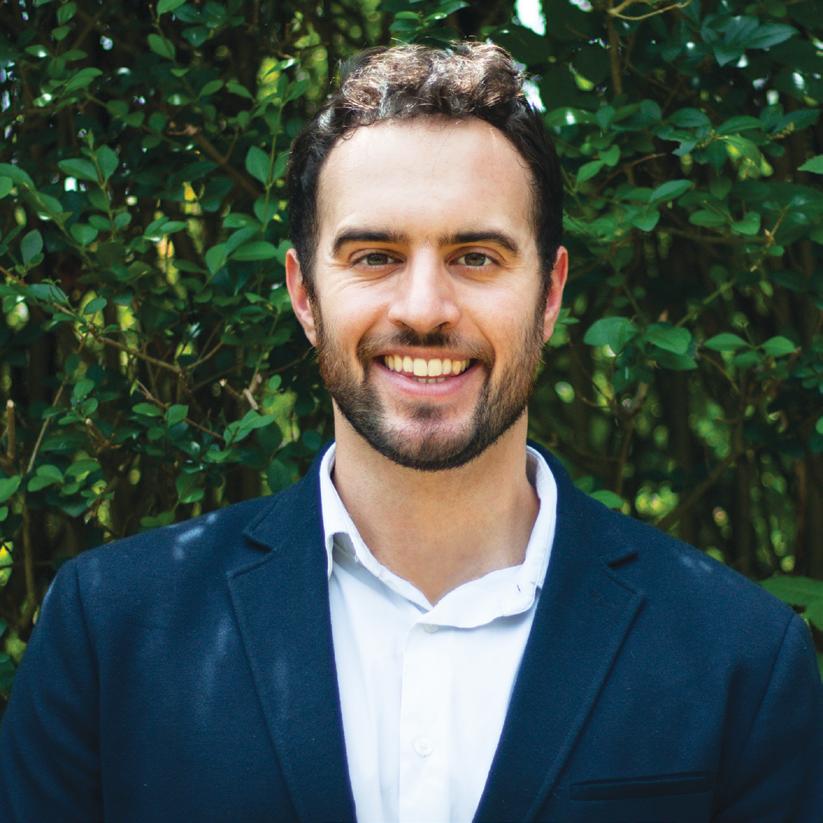
The academic year 2022/2023 has been vibrant for the Erasmus Student Network. As we celebrated 35 years of Erasmus+, and with many countries returning to pre-pandemic numbers of mobilities, our more than 500 local associations and thousands of volunteers have worked hard to support hundreds of thousands of mobile learners across Europe, contributing to the transformative power of student mobility and promoting international opportunities for all.
ESN’s primary focus during this turbulent period of rising inflation, increased living costs, and societal division was on fostering inclusion and engagement in student mobility. Removing barriers to participation in international learning opportunities took precedence, evidenced by the final conference of the Social Inclusion and Engagement in Mobility project. Moreover, ESN contributed to widening access to mobility through policy initiatives, such as the mid-term evaluation of Erasmus+ and the new Learning Mobility Framework. We have broadend the scope of our work in inclusion, considering the important role of aspects such as recognition, housing and support measures.
Making sure that learning mobility helps young people to become more engaged in society has also been a core priority for the year. The largest event in the history of ESN International, our second edition of the Erasmus Generation Meeting in Bucharest, focused precisely on that: how international skills can contribute to more engaged societies. This is also the core priority of our new flagship project, Erasmus Generation in Action, that will help to mobilise the Erasmus Generation in light of the European Parliament elections of 2024.
ESN’s commitment to amplifying the voices of exchange students led to increased data collection efforts and expanded communication outreach, with the goal of providing more students with access to mobility opportunities.
The academic year 2022/2023 brought 3 new countries to the ESN family, strengthening ESN’s presence in the Western Balkans and incorporating a first local association from Kazakhstan. The voice of the Erasmus Generation continues to grow louder across the European continent and beyond, and it is gradually becoming an increasingly global phenomenon.
One more year, thanks to the work of our amazing network and each and every one of our volunteers, we have continued to strive for our fundamental purpose: the enrichment of society through international students.

7 Foreword
One more year, thanks to the work of our amazing network and each and every one of our volunteers, we have continued to strive for our fundamental purpose: the enrichment of society through international students.
Highlights

8 Annual Report 2022/2023
Three New CountriesJoin the Network!
During the Spring General Assembly in Braga, the network approved the membership of three new member countries: Kazakhstan, North Macedonia, and Montenegro. This growth signifies the importance of offering comprehensive student support and promoting international education, as well as fostering cultural exchange and global citizenship.
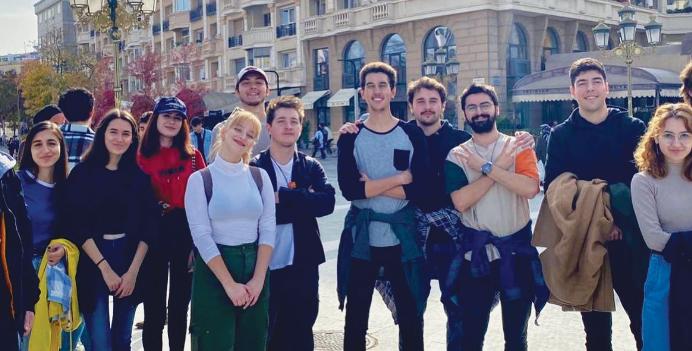
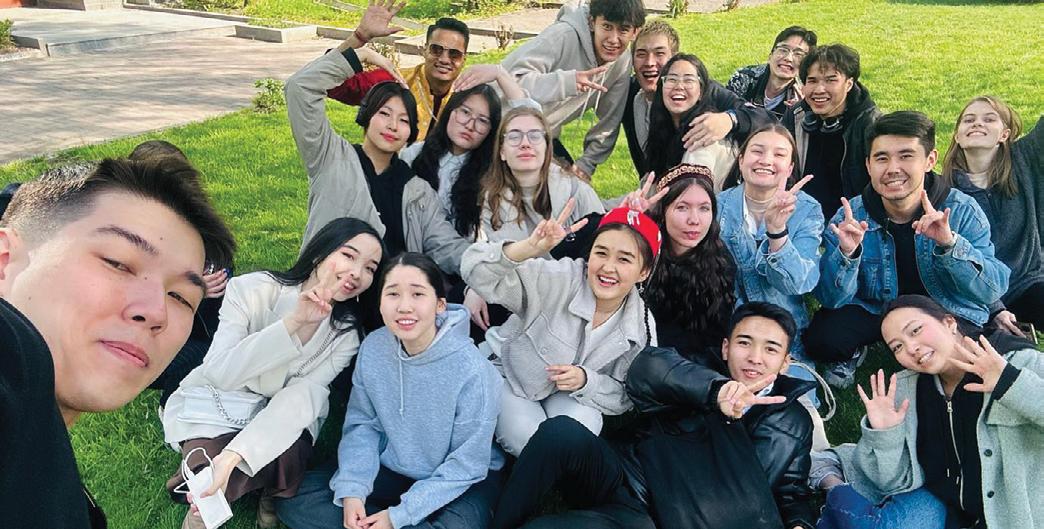
ESN has always been committed to supporting international students and bridging cultural gaps. The addition of Kazakhstan as the first Asian country to join ESN is a major milestone. Kazakhstan’s rich cultural heritage, diverse traditions, and growing education sector make it an ideal addition to the network. By providing Kazakh students access to ESN’s support infrastructure, the network opens doors for personal growth, intercultural exchange, and international collaboration.
ESN’s expansion into North Macedonia and Montenegro solidifies its presence throughout the Western Balkans.This move enhances the network’s ability to facilitate integration and mutual understanding among students from this region. By offering support to students from North Macedonia and Montenegro, ESN helps bridge cultural divides, and can offer more support to the growing mobility numbers in the two countries.
Our continued expansion reflects the dedication ESN has to providing comprehensive student support and promoting international education. By embracing diversity and offering a strong support system, ESN creates opportunities for students to grow academically, engage in intercultural experiences, and foster global connections.
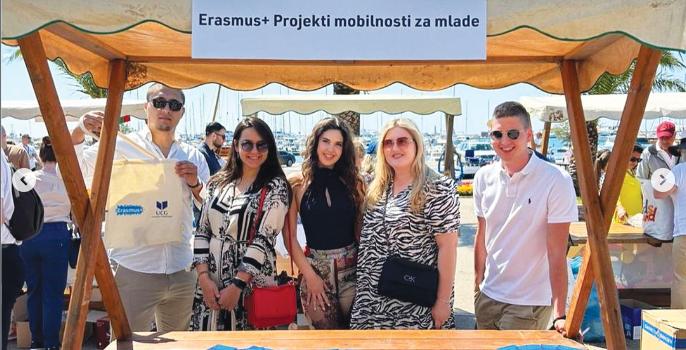
Highlights 9
ESN Almaty
ESN Skopje
ESN Podgorica
Erasmus Generation meets in Romania
The second edition of the Erasmus Generation Meeting took place in Bucharest from April 6th to 9th. More than 1000 participants attended the event, including mobility alumni, representatives from partner organiaations, EU institutions, National Agencies, universities, and associations. The event was organiaed by ESN Romania, with support from the Romanian Erasmus+ National Agency and was part of ESN’s flagship project, “Erasmus Generation in Action,” co-funded by the European Parliament.
EGM featured over 100 sessions conducted by both ESN members and external speakers from partner organisations, institutions, and universities. The opening ceremony included speeches by distinguished guests such as the Vice Rector of Politechnica University of Bucharest, the Secretary General of the Romanian Ministry of Education, and the President of the EAIE. Video messages from the Vice President of the European Commission and the President of the European Parliament emphasised the importance of the Erasmus+ program and acknowledged ESN’s contributions.
The sessions covered a wide range of topics, including youth participation, sustainable mobility, the future of Erasmus+, youth employment, and inequality. A key session involved a high-level panel with Romanian Members of the European Parliament, creating a platform for dialogue and understanding of MEPs’ work. The EGM Expo provided opportunities for participants to explore academic and mobility options across Europe and engage with companies regarding employability prospects.
The event also featured the presentation of the Erasmus Destination of the Year 2023 finalists and recognised outstanding initiatives through the annual ESN Awards. The closing gala celebrated the achievements of ESN sections and countries in various categories.
EGM was organised by 80 dedicated volunteers within a span of three months, showcasing their commitment, hardwork, and dedication. The event embodied the spirit of Erasmus, fostering welcoming environments, interculturality, passion, and unity in diversity.

10 Annual Report 2022/2023
Erasmus Destination of the Year
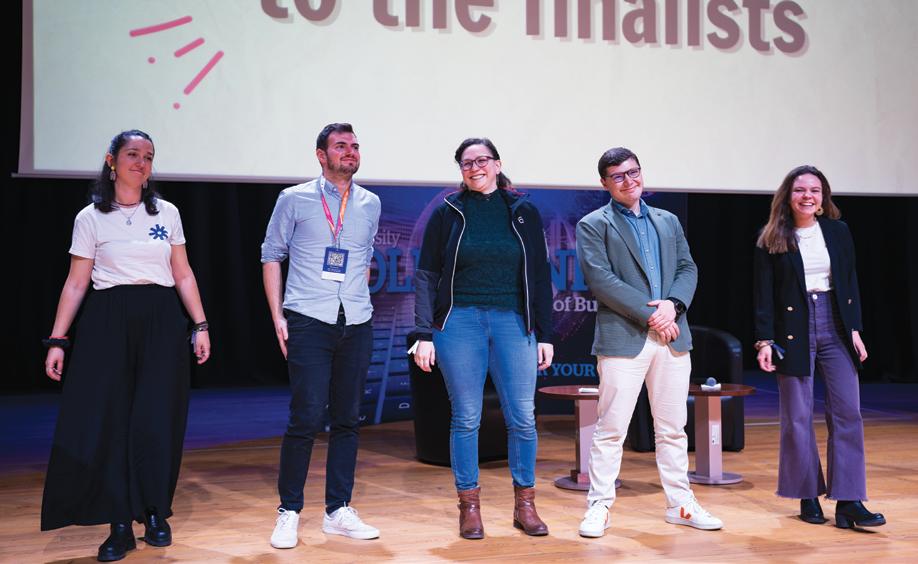
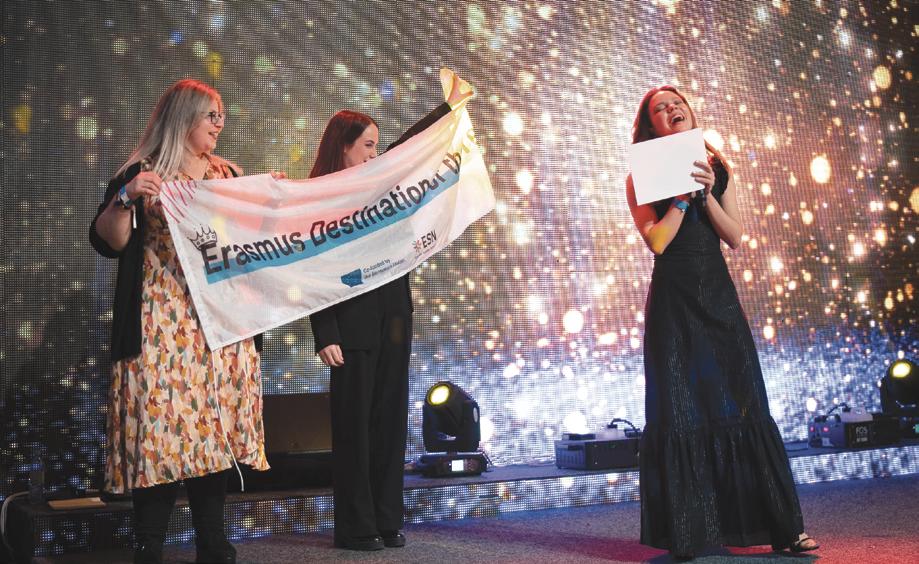
Second and improved edition
The Erasmus Destination of the Year initiative, started by ESN and the European Commission last year, seeks to identify great practices in supporting student mobility at the city level, showcasing the role that local student associations can play in making their cities better mobility destinations and improving the quality and impact of mobility experiences. This edition of the initiative builds upon the success of last year’s, powered by the Erasmus+ App through which ESN local sections submitted tips for international students in their cities, leading to the win for the city of Thessaloniki, our first-ever Erasmus Destination of the Year. Given the positive reaction from ESN’s network, and the reception the initiative has had in Thessaloniki and in Greece, ESN decided to expand the scope of the competition, while maintaining the essence of students helping students.
Ghent takes the crown!
Ghent, together with runner-ups Padua and Vienna, Valencia and Toulouse, made the finals after an internal evaluation and all 5 cities had a chance to present their bids for the title to the 1000 participants of EGM in Bucharest. The external jury made up of representatives from the European Commission, EAIE, Academic Cooperation Association, Youth Forum, and ESU made the final decision, taking into account important factors such as collaboration with key stakeholders such as HEIs, the municipality and other local partners ensures a high-quality mobility experience for students.
Ghent is the city where the idea for ESN first came to be, and the city and our organisation have been inseparable since. During the past 34 years, ESN Gent has had a strong collaboration with the key HEIs in the city, including Universiteit Gent whose Head of the IRO, Frederik De Decker, was the president of ESN Gent in the early 90s.
Read more
11 Highlights
Improving the Implementation of Erasmus+
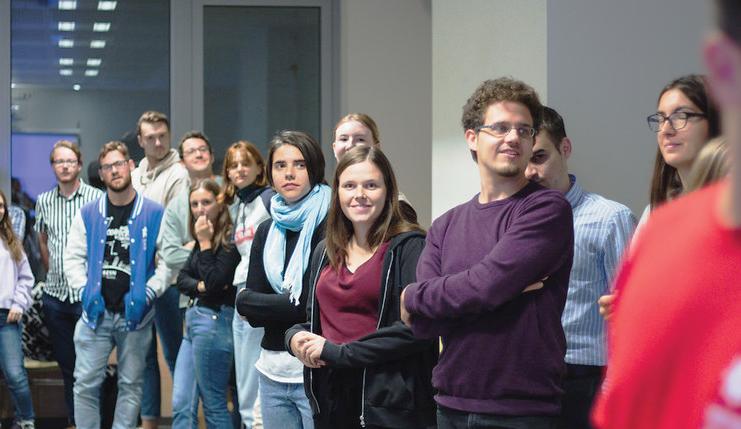
Launch of the Erasmus+ Review Reaction to the ECHE monitoring
In light of the ongoing evaluation process of the Erasmus+ programme 2021/2027, the European University Foundation, European Students Union, and the Erasmus Student Network have joined forces to produce a joint review of the first years of the current programme. The review was launched in the European Parliament, hosted by MEP Marcos Ros, a member of the CULT Committee and a strong advocate of the Erasmus+ programme, in the presence of colleagues from DG EAC and ACA.
The report emphasises the need for increased funding to ensure broader access and participation, better support for students with disabilities, and the promotion of social inclusion. It also stresses the importance of strengthening the recognition of learning outcomes, fostering cooperation among stakeholders, and harnessing the potential of digital tools to enhance the Erasmus+ experience for students. Read more.
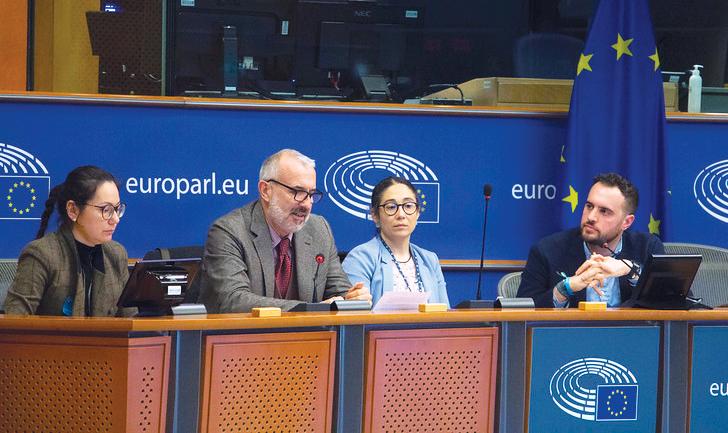
The European Commission published the Monitoring Guide for the Erasmus Charter for Higher Education (ECHE) 20212027, which aims to evaluate the quality of participation in Erasmus+ mobility and cooperation projects for Higher Education Institutions (HEIs).
ESN welcomed the guide and emphasised the importance of ambitious ECHE implementation for high-quality student experiences. The monitoring framework focuses on key student challenges such as recognition, grant payments, support services, and inclusion measures.
ESN encourages comprehensive monitoring systems to assist HEIs in developing internationalisation strategies and meeting student needs. Collaboration between the Commission, National Agencies, experts, and stakeholders, including ESN, facilitated the guide’s creation.
Read more.
12 Annual Report 2022/2023
Erasmus+ Mid term review
ESN provided valuable input for the final evaluation of the Erasmus+ program. Drawing on research, policy initiatives, and extensive experience collaborating with students, Higher Education Institutions, National Agencies, and the European Commission, ESN acknowledges the success of Erasmus+ 2014-2020 while highlighting challenges.
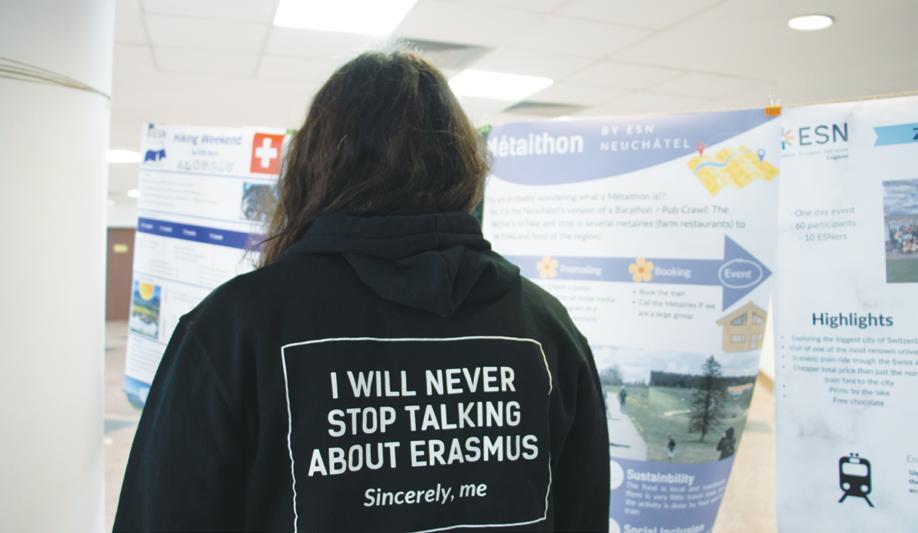
ESN identifies significant obstacles faced by students from disadvantaged backgrounds, including grant payments, credit recognition, course availability, and accommodation issues. ESN emphasises the need for comprehensive monitoring of ECHE commitments to ensure Erasmus+ meets expectations. For Erasmus+ 2021-2027, ESN calls for timely grant disbursement, improved access for students with fewer opportunities, and highlights areas for mid-term program review, such as scholarships, civic engagement, internships, and credit recognition.

Read more.
Erasmus+ grant simulator
As part of the Erasmus Days, ESN launched the Erasmus+ grant simulator, the newest feature on our student-centered Erasmus Generation Portal. In the latest Social Inclusion & Engagement in Mobility research report, 94% of mobile students found the information available about funding useful. However, they struggle to find such information, which can become a barrier to mobility.
To eliminate these barriers, the the Erasmus+ grant simulator was created, which will allow students to make a simulation based on general Europe-wide rules in respect to the Erasmus+ Programme Guide. Students will receive an estimate based on their mobility type, duration, and location. It takes into account some background information to tailor it as closely as possible to reality.
13 Highlights
Check out the simulator!
ESNsurvey and Student Data
Publishing the ESNsurvey XIV
In its 14th edition, the ESNsurvey collected more than 10,000 answers in 2021. The main objective of the survey was to monitor the implementation of Erasmus+ Higher Education mobilities and other student exchanges, considering the commitments included in the Erasmus Charter for Higher Education, the quality framework that Universities need to adhere to in order to participate in Erasmus+ mobilities.
The report indicates improved satisfaction with student mobilities under the Erasmus+ program, leading to increased interest in sustainability and international-mindedness. However, challenges such as financial support, recognition, and limited interaction with local communities persist. Trainees express lower satisfaction compared to study participants, while Erasmus+ International Credit Mobilities receive higher satisfaction levels.
The report also reveals that most students cannot cover more than 50% of their expenses with mobility grants, and less than a third receive scholarships before their mobilities. Problems with courses and recognition further hinder students’ mobility experience, with nearly a third reporting incomplete recognition
Read more.
only 1/3 of respondents received the grant before departuring on mobility
66,56% of students from Spain receive their grants more than 30 days after arriving at their mobility destination
29% did not receive full credit recognition
Erasmus+ trainees (41%) have considerably lower levels of satisfaction than their peers doing Erasmus+ studies (55%)
I reckon the administration should calculate the basic costs of each city where they’re sending the students and then decide on the monthly scholarship.
- survey respondent
14 Annual Report 2022/2023
“Through all these years, ESNsurvey has remained a student and volunteer-led initiative since its inception, and all its editions have only been possible thanks to the incredible work and commitment of all the ESN volunteers who have contributed to its creation, promotion and dissemination.”
- Juan Rayón González, President of the Erasmus Student Network,
Launch of the ESNsurvey XV
Open until the end of July 2023, the 15th ESNsurvey seeks to monitor the implementation of mobility programmes, including Erasmus+, the Swiss mobility programme SEMP and the new mobility programmes of the UK and gain insight into the experience of international learners abroad, as well as the perceptions of students who have not participated in international student mobility yet.
In light of the ongoing midterm evaluation process of the Erasmus+ programme, the survey will place a special emphasis on aspects related to inclusion and access to student mobility, as well as the student perceptions on aspects related to civic engagement, sustainability and digitalisation.
The survey’s preliminary findings will be avaialbe at the beginning of the following academic year, with the full report launch expected at the end of 2023.
Snapshot survey on housing with ESU
The housing situation of international students is a long-standing challenge in the implementation of Erasmus+ mobilities. At the beginning of the academic year 2022/2023, the raise of inflation and the cost of living crisis have contributed to worsening the situation.
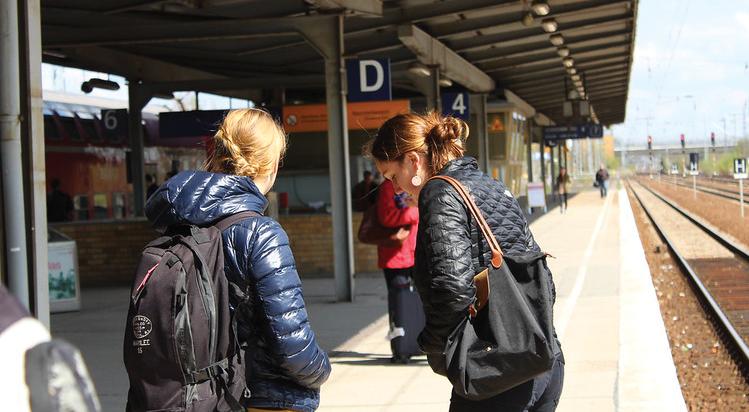
With the objective of gathering evidence and a full understanding of the situation, ESN and ESU launched a snap survey on international student housing. The findings of the survey will help to come up with proposals targeting Higher Education Institutions, National Authorities and European Institutions.
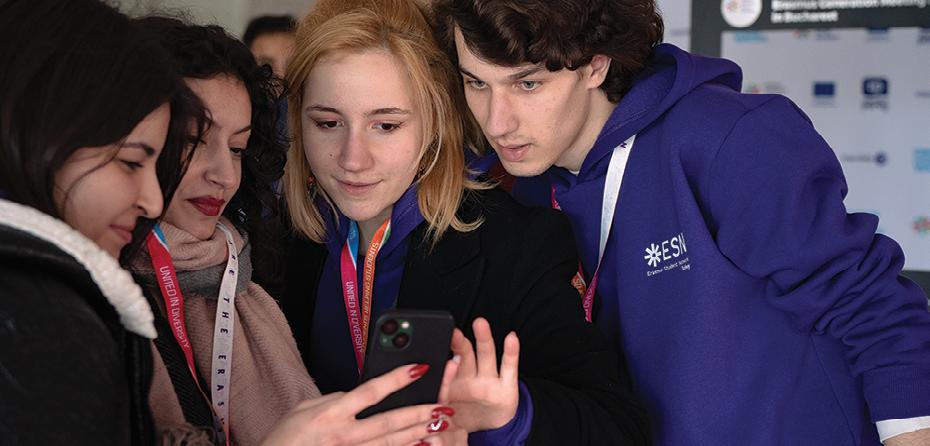
15 Highlights
Inclusive & Accessible Student Mobility
SIEM Final Conference
The Social Inclusion and Engagement in Mobility Conference, organised by ESN, aimed to address social inclusion and engagement in student mobility. The conference brought together stakeholders, including students, higher education institutions, policymakers, and experts, to discuss and share best practices on topics such as accessibility, diversity, and inclusion in international student exchanges. Key themes explored included mental health support, financial barriers, and the role of student associations in promoting social inclusion. The conference provided a platform for participants to exchange ideas, strategies, and innovative approaches to enhance the social impact of student mobility and ensure equal opportunities for all students. Read more.
SIEM Technical Recommendations
As part of the Social Inclusion and Engagement in Mobility project, ESN and the SIEM project consortium are launching the SIEM recommendations, aimed at reviewing the documentation involved in Erasmus+ mobilities to make Erasmus+ Higher Education exchanges more inclusive.

This document provides a comprehensive review of key documents and processes in Erasmus+ mobilities. It covers guidance and implementation, monitoring and evaluation, and student documents. It includes important documents like the Erasmus+ programme guide, national inclusion action plans, and documents related to monitoring, evaluation, and student interactions.
Read more.
16 Annual Report 2022/2023
New Council Recommendation on a Learning Mobility Framework
Participation in the citizens panels
From 28 to 30 April, the Commission gathered a Citizens’ Panel in Brussels for the third and final session of deliberations on how to expand learning opportunities abroad to everyone.
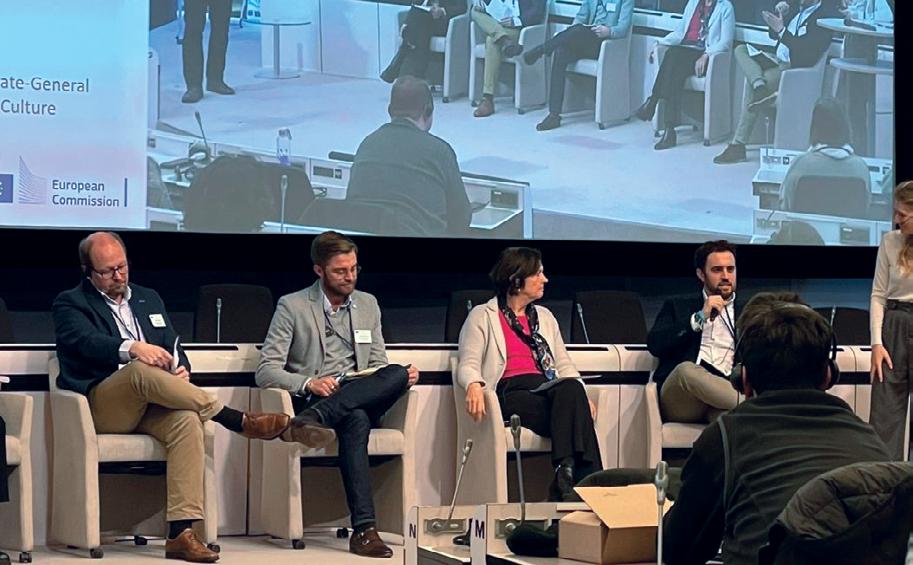
ESN was represented by our President, Juan Rayón, who is also a part of the Knowledge Committee responsible of creating Council Recommendations to improve access to learning mobilit. It was especially rewarding to see how the work done through ESN initiatives such as the SIEM Project has helped to shaped the discussions and structure the analysis on barriers to mobility.
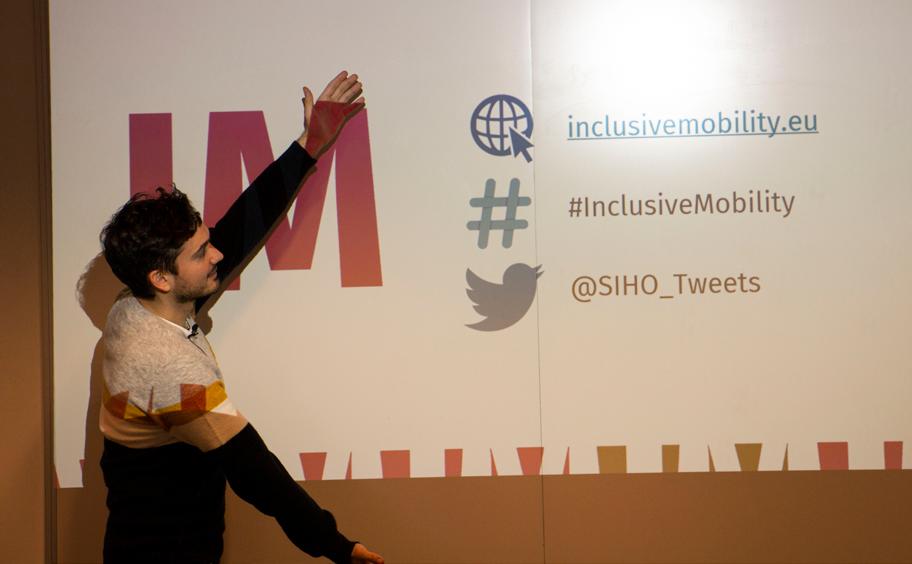
ESN’s Contribution to the Council Recommendation
ESN has been deeply involved in the process of creation of a new Learning Mobility Framework, an EU policy on learning mobility that will substitute the current “Youth on the Move” Council Recommendation. The objective of this document is to make mobility a reality for all.
ESN delivered a comprehensive set of proposals as part of the official call for evidence, and the ESN president was part of the Knowledge Committee that supported the work of the Citizen’s Panels created to contribute to the Council Recommendation. Read more.
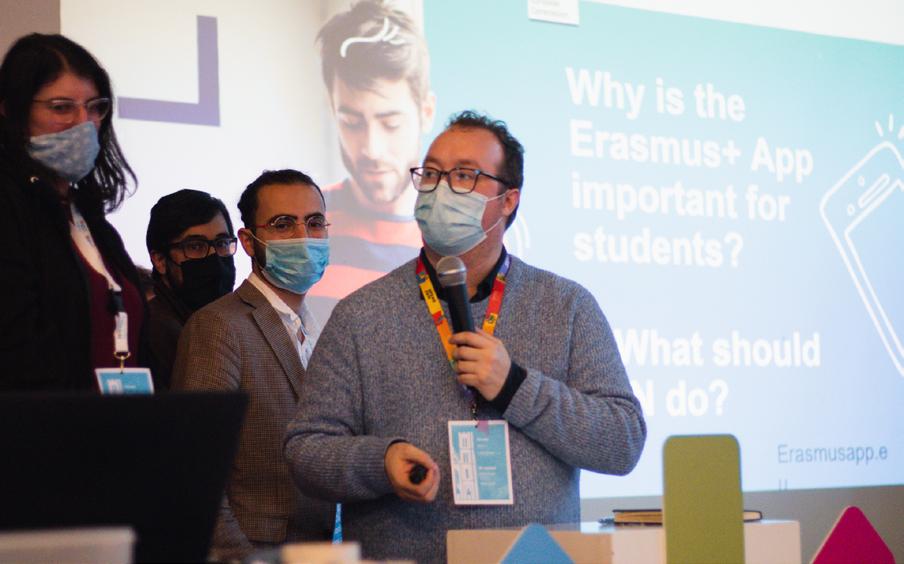
17 Highlights
Mobilising Young People
Erasmus Generation in Action
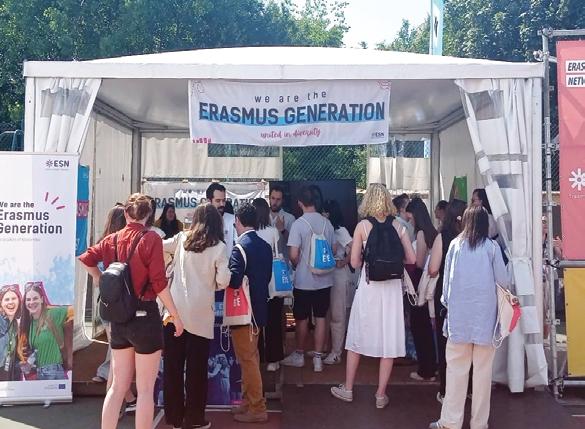
In January, we launched a new EU-funded project which aims to raise awareness among young Europeans about EU opportunities and promote active citizenship. Through EGiA, we plan to organise 163 activities in 18 member states, engage young people in discussions about their role as active citizens, attract 5,000 new sign-ups on together.eu, reach 2 million people through outreach activities, and train 170 change-makers. EGiA seeks to make young people aware of EU opportunities and encourage them to advocate for their rights as Europeans.
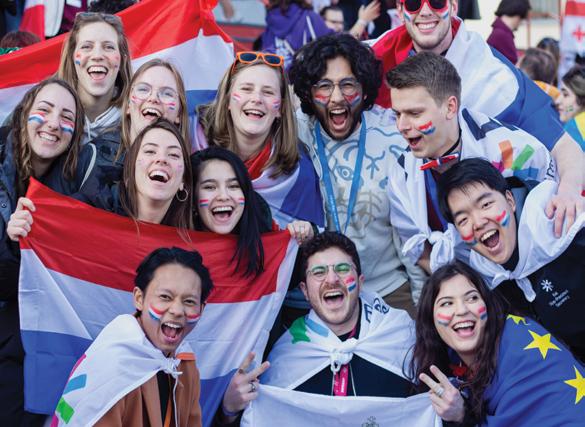
Read more.
Speak Out! workplan ESN at EYE2023
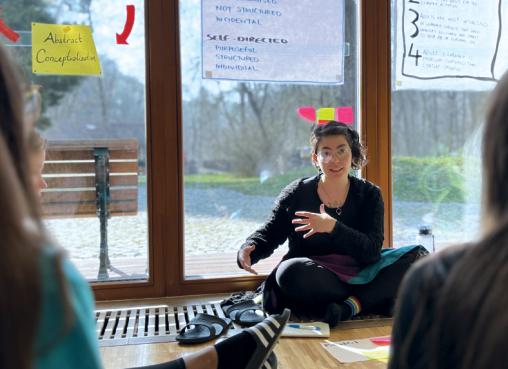
With a delegation of 100 people, all members of the Erasmus Generation, we helped the EYE audience address the pressing issues in the realm of internationalisation. We were proud to contribute to the event’s content with a diverse range of sessions, tackling key topics such as innovative mobility formats, widening participation in student mobility, and promoting sustainability within international student mobility. Everyone passing through the Informarket could approach us to learn more about opportunities the EU offers to the young people today. Read more.
Speak
Out: Building Youths’ Voice Against Racism and Discrimination
is part of the annual work plan 2023 funded by the Council of Europe and the EYF. The objective of the project is to raise awareness of the impact of social media platforms on young people and how it contributes to spread of misinformation and hate speech. As a part of the workplan, ESN is organising a training for trainers and multipliers, and developing a European-wide campaign that will promote positive intercultural dialogue to counter racism, discrimination and nationalistic voices.
Read more.
18 Annual Report 2022/2023
ESN Supporting Global Mobility
ESN Joins the Global Student Forum!
ESN and the Global Student Forum (GSF) joined forces by signing a Memorandum of Understanding to promote internationalisation and facilitate access to quality education, employment, representation, exchanges, and student mobility for young people. The joint action plan between ESN and GSF identifies several key pillars, including promoting student mobility and internationalisation, with a special focus on students with fewer opportunities, such as those from disadvantaged socio-economic backgrounds, ethnic minorities, and rural areas.
Youth and External Action Plan reaction
Read more.
ESN in the South Mediterranean
ESN continued to increase its work in the South Med with collaboration with key stakeholders and capacity-building initiatives for students. In November, ESN co-organised the first Mediterranean Student Summit together with UNIMED and the University of Barcelona, bringing together students from both shores to foster internationalisation and intercultural dialogue. That same month, ESN Irbid became the first Jordanian candidate section of ESN. We have also been involved in the consultation process led by the Union of the Mediterranean in preparation for the UfM interministerial conference in Higher Education.
ESN reacted positively to the EU’s Youth Action Plan in external action, emphasising the importance of youth participation and empowerment for sustainable development and peace. ESN supports the plan’s pillars of action and calls for inclusive learning mobility, increased opportunities, and more support for the Erasmus+ program. They address barriers faced by non-EU students, administrative challenges in hosting non-EU volunteers, and advocate for expanding the reach of Erasmus+. ESN also highlights the significance of supporting youth organizations and democratic engagement, particularly in Enlargement and Neighbourhood countries. Read more.
ESN and Latin America
As part of our efforts to advocate for the common Higher Education space and for increased exchange opportunities between Europe and Latin America, ESN attended the Knowledge Forum organised by the EU LAC Foundation in Montevideo, Uruguay, which served as a platform to discuss ideas that will be presented to Heads of State and Government in the EU-LAC Summit. In May, ESN also participated in the UE-CELAC Academic and Knowledge Summit organised by SEGIB. Lastly, ESN will be represented at the civil society forum that will happen during the EU-LAC Summit in July.
19 Highlights
Digitalisation and Skills in Learning Mobility
Closing the Compass project
In June, we closed the Compass project with an in-person conference in Brussels, bringing together people working in the field of international student mobility to discuss how peerto-peer communication can improve the mobility experience of students. The conference was a chance to present the project’s results conceived to be used by a wide spectrum of Higher Education actors who got the chance to find out what expectations and needs of students preparing their mobility have, stakeholder practices and a guide of good practices and students’ mobility support framework. Read more.
Setting priorities within digital education policy

Policy-making for digital education has the potential to advance European cooperation, innovation and sustainability within the Higher Education sector. During the closing event of the OpenU project held in November 2022 in Brussels, the consortium presented policy recommendations from working meetings with education ministries and HEIs from Latvia, France, Portugal, Belgium (Flanders) and Germany. The recommendations cover a variety of topics and aim to open up a discursive space for discussions and the development of new research questions and policy aims.
As we mark the European Year of Skills in 2023, ESN’s platform ErasmusIntern.org broke through the 1 million visitors mark, showing a clear interest in personal and professional development of young people. ErasmusIntern.org connects students and young professionals with internships across Europe, promoting mobility and the development of essential skills. The number of companies and diverse offers grows year after year, and the platform contributes to creating a skilled European workforce while enhancing employability and encouraging innovation.
ErasmusIntern.org
20 Annual Report 2021/2022
Towards a Greener Mobility
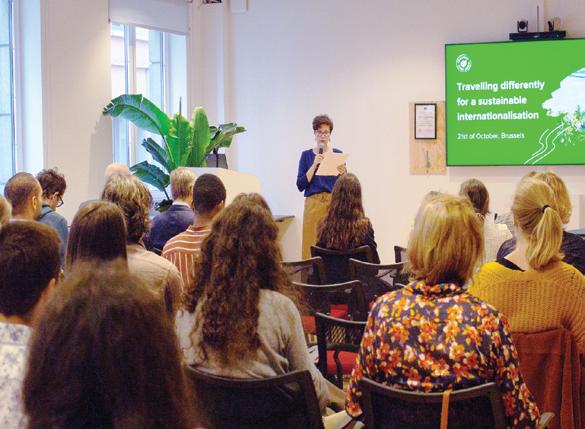
Students want greener Erasmus!
Through the whole year, we have been collecting the signatures for our Green Erasmus petition, a goal which we reached at EGM. More than 5000 signatories ask the EU institutions for more funds to travel sustainably. Specifically, the petition’s demands are to increase the current €50 to a universal top-up of up to €250 for green travel, and increasing the current 4 days up to 7 days of additional individual support covering additional subsistence costs and/or accommodation needs linked to green travel.
Learn how to make your Erasmus
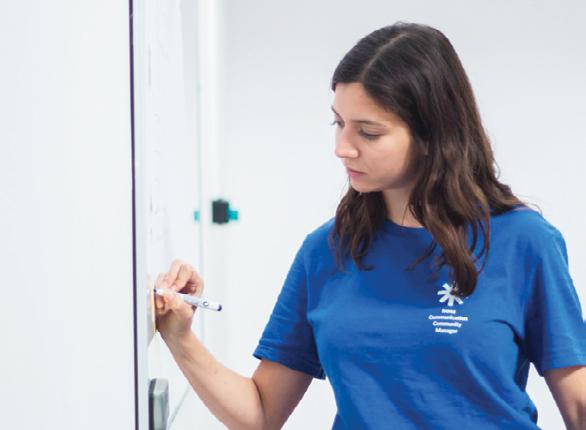
Successfully closing two major projects
ESN has been working hard in the last few years to make the the Erasmus+ programme more environmentally sustainable. As a part of these efforts, we worked on two EU funded projects. the Erasmus Goes Green and Green Erasmus, both of which were successfully finalised this year. While the former focus purely on reducing the transport-related carbon footprint of students and staff, the Green Erasmus project, led by ESN, has a more holistic approach and provides students and HEIs with practical tools to carry out a sustainable internationalisation.
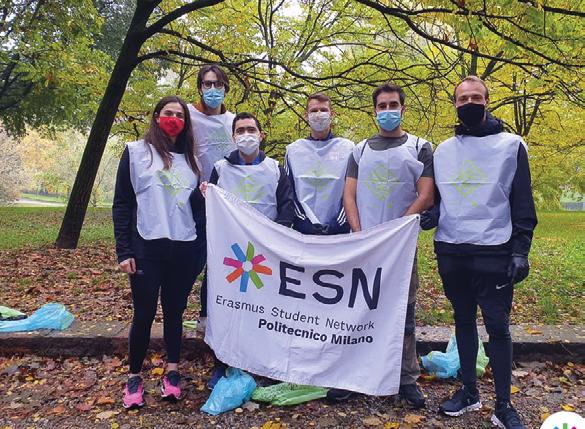
Green Erasmus local phase
As a part of the Green Erasmus Project, ESN International awarded micro-grants to help sections organise environmental activities on the ground. We selected 11 local and national organisations from across the continent, who implemented activities for the international students and the local community on topics ranging from planting trees and gardens, healthy and sustainable nutrition, beach and river clean-ups, all in the effort to educate the two groups together on the importance of taking care of our planet, while brining them closer together.
greener!
21 Highlights
Year in Review
5-14 August 2022
Eduk8 Forward
ESN’s yearly advanced trainings for trainers, supported by the Council of Europe and the European Youth Foundation, saw 18 young people improving their skills in non-formal education methodologies.
22-25 September 2022
Community Meetings Cluj-Napoca
During the first round of workshops in Stuttgart, students from different backgrounds reflected on the challenges and worked on the creation of proposals to address the needs of different underrepresented groups.
27-30 October 2022
Regional Platforms
Yearly regional training events took place in Georgia, Ireland, France, Hungary, and Denmark, bringing our volunteers across all thee levels together and helping them boost their skills.
25-28 August 2022
National Boards’ Training Burgas
Over 90 participants from the National Boards of the ESN countries met to exchange experiences and challenges, acquire new skills and knowledge at the start of the new ESN year.
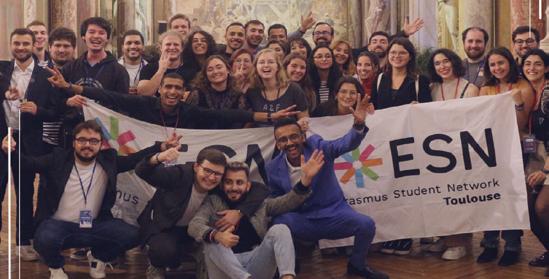
3-4 October 2022
SIEM Final Conference
ESN closed its most successful projects on inclusion with a unique 2-day conference in Brussels, which brought together students and decision-makers.

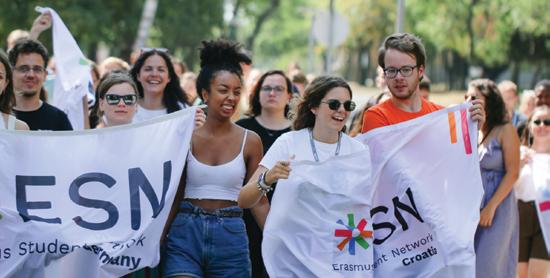
8-13 November 2022
Autumn Training
This multiplier training brought together student representatives from all over Europe to learn about the topic of mental health of both our volunteers, and international students.
22 Annual Report 2022/2023
25-27 November 2022
Autumn General Assembly
The General Assembly of ESN met in Sakarya, Turkey, at the end of November to discuss and vote on important topics, including the new 3 Year Strategy of the organisation.
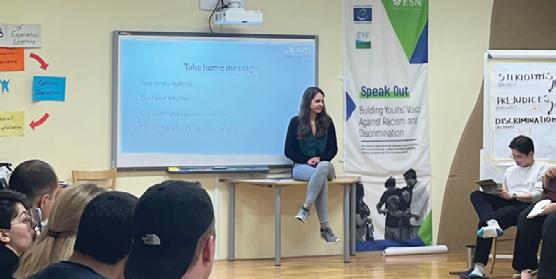
6-9 April 2023
Erasmus Generation Meeting Bucharest
More than 1000 participants, students, youth leaders and stakeholders, took part in over 100 sessions discussing everything from improving activities on the ground to accessible student mobility.
18-21 May 2023
International Erasmus Games
ESN’s biggest event focusing on health and well-being took place in Madrid, Spain with 200 young people taking part in 4 different sports disciplines.

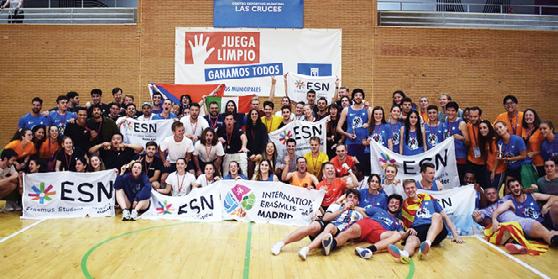
23 February - 5 March 2023
Eduk8 Starter
Fourty young people interested in the learning more about nonformal education and learn more about the topic of anti-racism and how to use NFE to fight discrimination.
28-30 April 2023
Spring General Assembly
The main decision body of ESN gathered in Braga, Portugal for the second time to make important decision, including electing the new International Board of the organisation.
6-10 Jun 2022
Community Meetings Vienna
Four communities met again this year in Vienna, Austria where they got a chance to learn and improve their skills, but to also celebrate diversity by joining the stunning Vienna Pride.
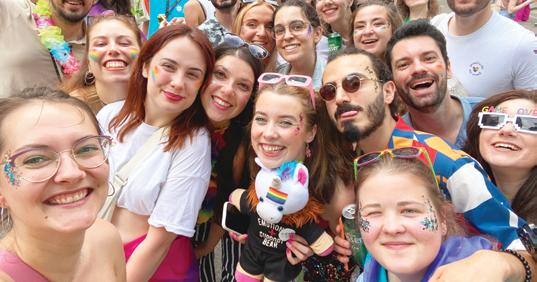
23 Highlights

Erasmus Generation is at the heart of Europe.
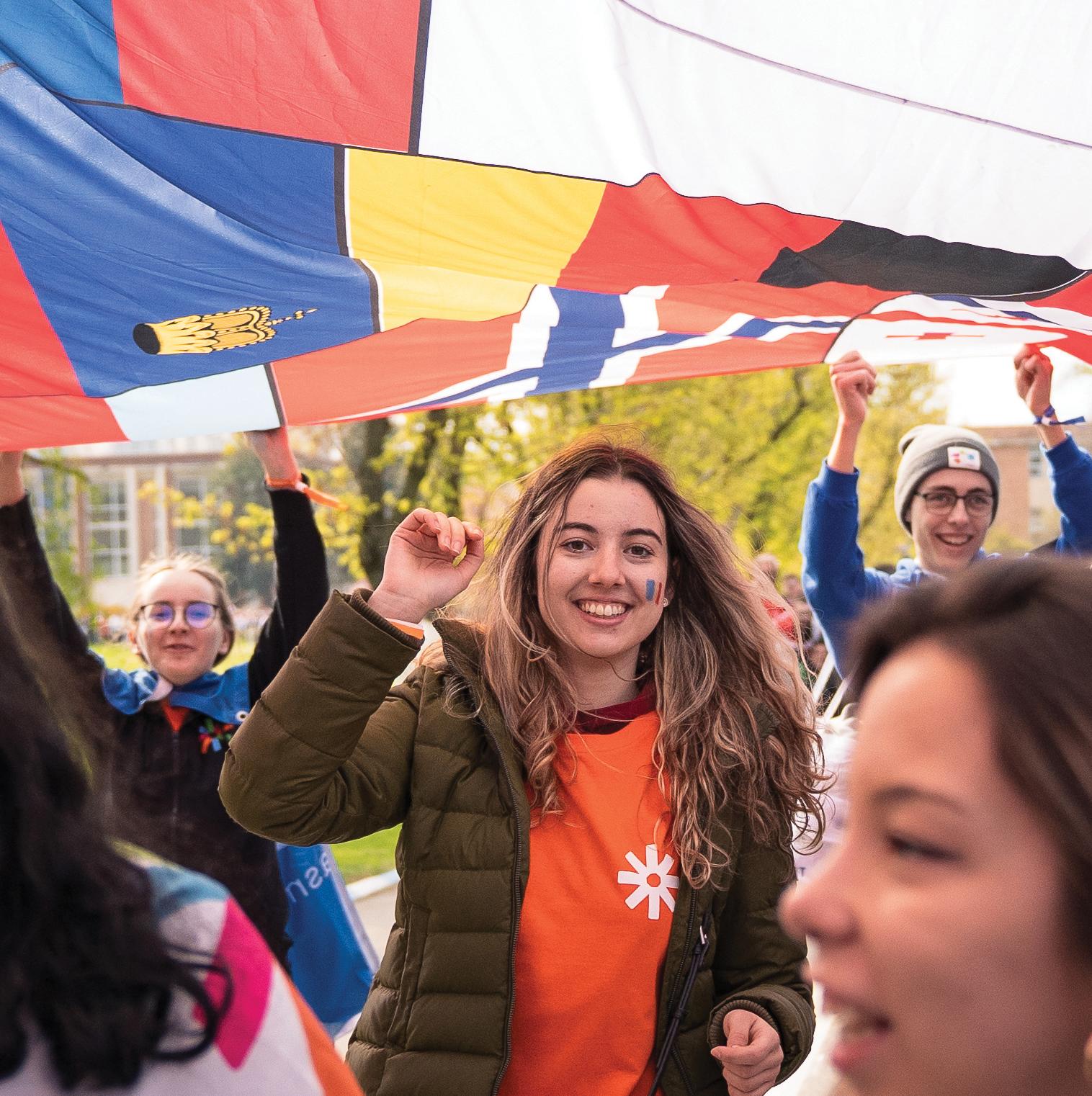
You have created a community where anyone can belong, where everyone is welcome.
- Themis Christophidou, Director General of DG EAC in a video message at the Erasmus Generation Meeting
ESN in the Media

26 Annual Report 2022/2023
Erasmus Students in Ireland Might Cancel Studies Due to Lack of Accommodation
ErudEra | OctObEr 12, 2022
Erasmus students enrolled at Irish universities are encountering difficulties in finding a place to stay in Ireland due to the housing crisis that the country is facing.
Hungarian ministers head to Brussels as dispute over EU block on funding for R&D and student exchanges heats up
thE PIE NEws | OctObEr 12, 2022
Students and researchers are increasingly concerned about the impact of universities in Hungary being locked out of Horizon Europe and Erasmus programmes over rule of law concerns
Europeans losing out on UK internships
thE PIE NEws | JaNuary 24, 2023
The article from The PIE News underscores the significant impact of visa restrictions on European students’ access to valuable internship opportunities in the UK, raising concerns addressed by ESN and other organisations advocating for inclusive mobility.
Ghent named Europe’s best Erasmus destination
The brussEls tImEs| a PrIl 29, 2023


Ghent, Belgium has been crowned as the Erasmus Destination of the Year, through ESN’s flagship initiative, recognising the city’s exceptional appeal for international students with its vibrant cultural scene and high-quality education offerings.
Let’s build a fairer Erasmus now
EuractIvE| JuNE 21, 2023
Erasmus grants are too small to allow a student who does not come with money from home to study abroad. It is time to ask ourselves if everyone has access to this programme and if not how can we make it fairer - write Nicu Stefanuta and Juan Rayon Gonzalez.

27 ESN in the Media
Facebook Instagram

TikTok
28 Annual Report 2022/2023

29 ESN in the Media LinkedIn ESN.org Twitter ErasmusGeneration.org
About Us
The Erasmus Student Network (ESN) is the largest student association in Europe. It was born on 16th October 1989 and legally registered in 1990 to support and develop student exchange. We are present in 1,000 Higher Education Institutions across more than 40 countries.
The network is constantly developing and expanding. 15,000 active members, that in many sections are supported by so-called ‘buddies’, act as mentors for international students. Thus, ESN involves over 29,000 young people offering its services to around 350,000 international students every year.
ESN works for the creation of a more mobile and flexible education environment by supporting and developing student exchange as well as providing an intercultural experience also to those students who cannot access a period abroad (“internationalisation at home”).
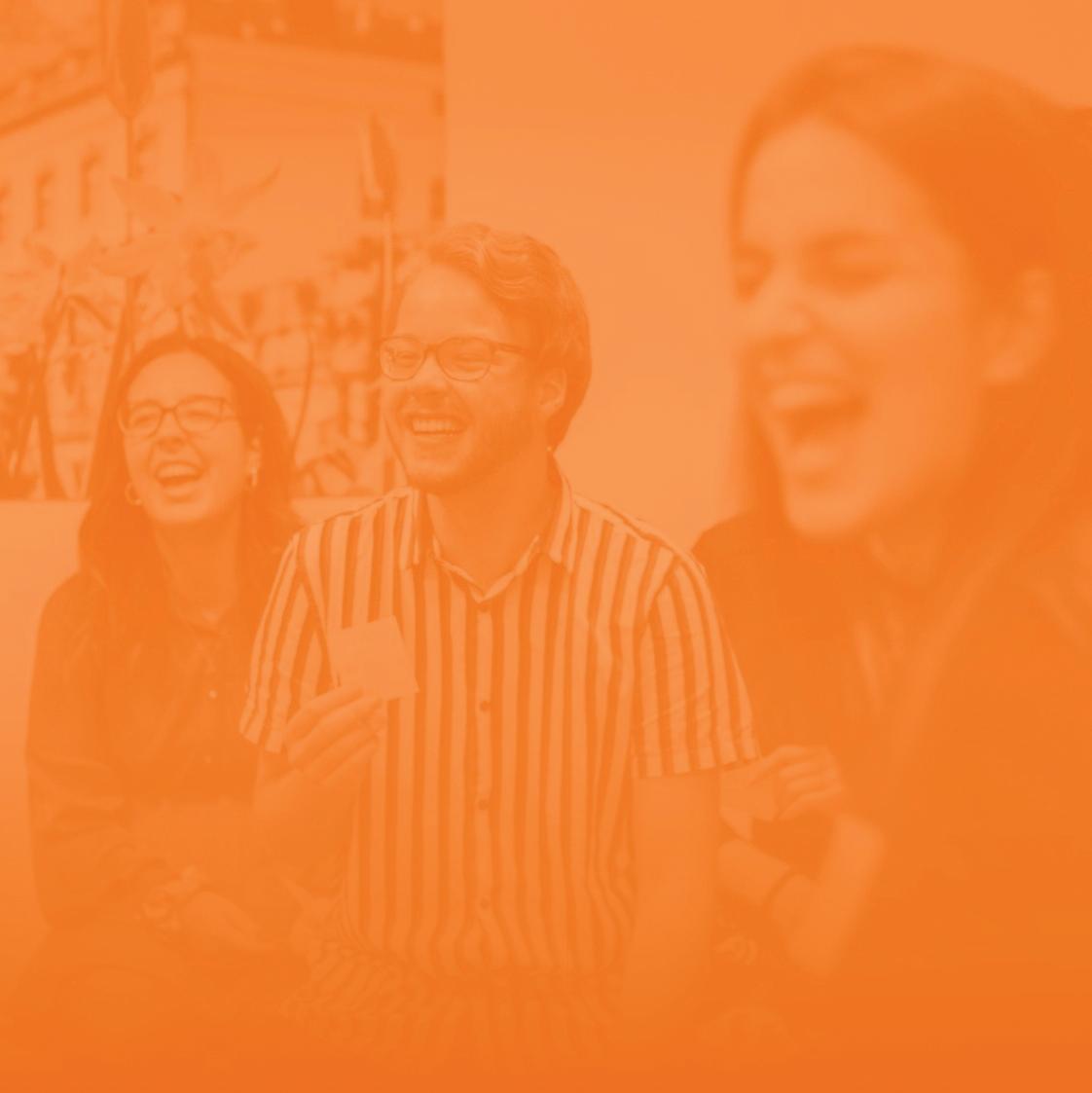
30 Annual Report 2022/2023
Mission
Enrichment of society through international students’ mobility.
Principles
• ESN works in the interest of international students.
• ESN works to improve the social and practical integration of international students.

• ESN represents the needs and rights of international students on the local, national and international level.
• ESN provides relevant information about mobility programmes.
• ESN motivates students to study abroad.
• ESN works with the reintegration of homecoming students.
• ESN contributes to the improvement of different mobility programmes.
• ESN cares about its members.
• ESN values volunteering and active citizenship.
31 About Us
Vision
Strategic Priorities
Students
ESN will empower future, alumni, and current international students to be ambassadors of intercultural understanding and active citizenship, sharing the value of unity in diversity.
Exchange Programmes
ESN will work to increase the quantity and quality of study abroad programmes around the world.
Volunteers
ESN will provide its volunteers with valuable transversal skills acquired through self development opportunities and empower them for active engagement in the organisation.
Visibility & Outreach
ESN will work to build a globally recognisable brand, increasing its visibility and outreach, and fostering a positive image of international exchange.
Activities & Services Governance
ESN’s activities and services at all levels will increase in quality, becoming more inclusive and achieving measurable impact in society.
ESN will work to create an interconnected and self-sustainable network with a strong membership and efficient structure.
32 Annual Report 2022/2023
By 2025, ESN will be the global network of the Erasmus Generation, committed to improving international education and providing self-development opportunities to two million young people, fostering intercultural understanding and creating positive change in society.
Values Studentsstudentshelping
We passionately commit ourselves to volunteering for the benefit of others.

Unity in diversitydiversity, in unity
We all have different backgrounds but share one common aim and goal.
International dimension of life
We are open-minded, mobile, like to discover and explore, to cooperate, to interact and to break Borders.

Love for Europe as an area of peace and cultural exchange
We live and benefit from the cultural richness of Europe to the utmost.
Opennesstolerancewith

We understand and accept others and learn from them.
Fun in friendship and respect
We encourage relations based on respect.
Cooperationintegrationin
We share a holistic view towards internationality.
Annual Report 2020/2021 33
About us
Structure
To be able to achieve the aims of the organisation, as well as fulfill our mission and vision, and uphold our values, ESN is structured on three levels: local, national and international.
General Assembly
Section
Section
Section
Section
National Organisations National Organisations
Statutory Bodies
Non-statutory Bodies
Support Structures
International Level National Level Local Level
ESN consists of 500+ local ESN sections working daily with international students. They organise activities, provide services and represent interests of international, exchange and local students of one or several higher education institutions in their city.
Sections of a country meet during National Assemblies, where they have the chance to exchange best practices. The sections also elect their National Board, which is in charge of leading the National Organisation, conducting national projects and representing ESN towards national institutions and stakeholders.
The General Assembly is the highest decision-making body of the Erasmus Student Network, which votes on all Statutes and Standing Orders proposals, on all non-Statutory proposals and on the election of the Board, the Audit Comission and the Arbitration Board. The General Assembly meets twice per year.
NB NB
International Board Arbitration Board Audit Commission
Secretariat Committees Project Teams Liaison Office
34 Annual Report 2022/2023
Finance
ESN benefits greatly from public grants supporting both projects and operational work. These predominantly come from the European Commission, the Council of Europe and the Belgian Government.
As expected, the budget for 2022 ended up with a negative balance.
The decrease in international mobilities since March 2020 led to a significant reduction in revenue from ESNcards, our main source of uncommitted funding, causing the expected income to nearly halve compared to a normal year.
Despite this, ESN International chose not to make major cuts in expenses, instead opting to increase support to the network, guarantee volunteer participation in events, and invest in network development. However, there was a positive turnaround with the income from ESNcards in the second half of 2022, and income from commercial partners exceeded projections.
2015 2016 2017 2018 2019 523k 882k 1,133k 980k 1,193k Budget through the years (€) 2020 1,152k 2021 1,109k 1,224k 2022 Revenue €1,224,320 Network income Public funding Private income Other 287,965 748,662 118,844 68,850
Board and Staff Headquarters Subcontracting Travel and meetings Projects and events 598,643 180,621 43,021 30,032 546,137 Partnership expenses Extraordinary Costs 1,448 2,065 35 About Us
Expenses €1,401,967
in 2022/2023
36 Annual Report 2022/2023
in 2022/2023 in
37 About Us
2022/2023
External Relations
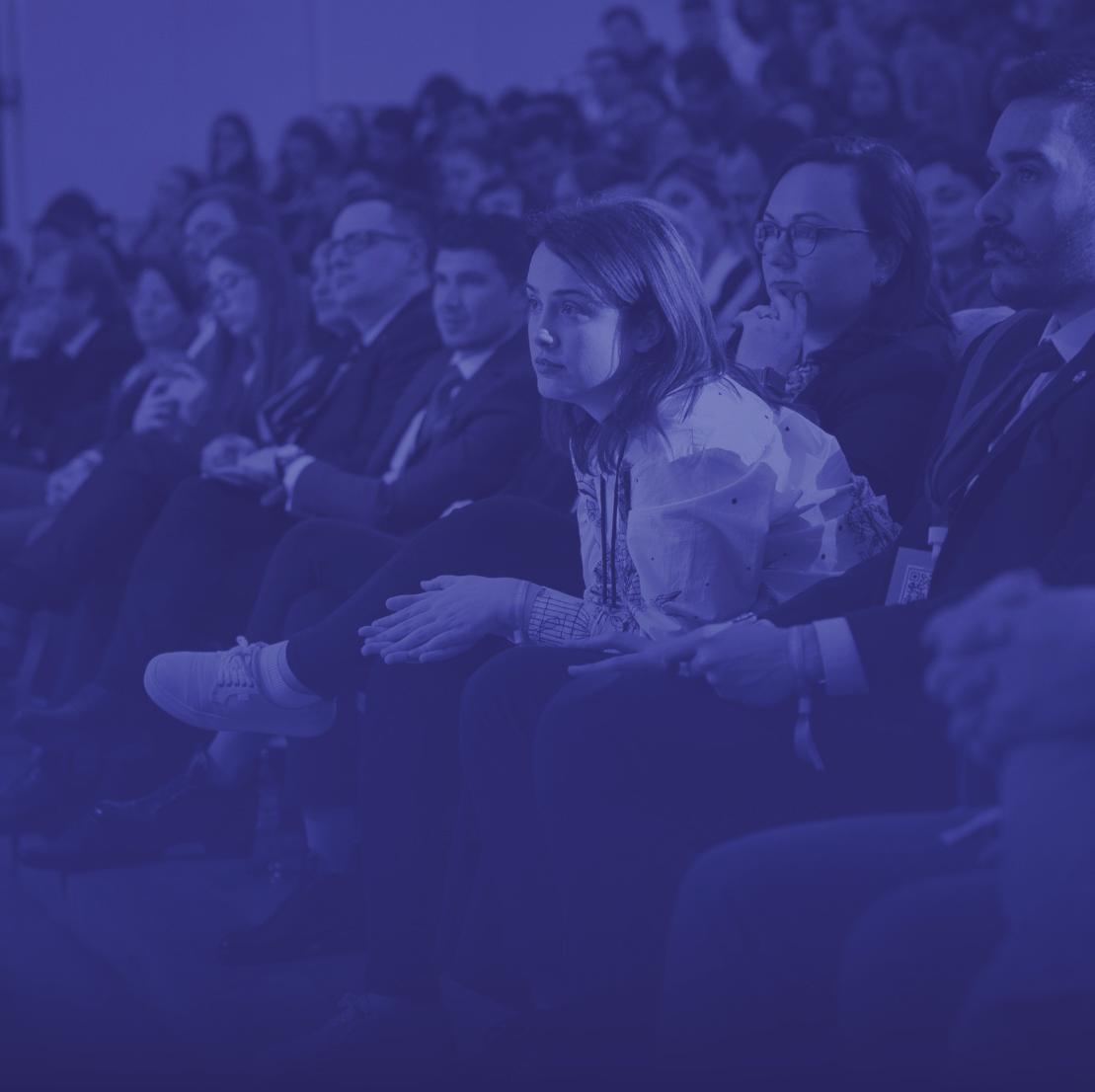
38 Annual Report 2022/2023
ESN as a Member European Youth
Generation Climate Europe (GCE)
Generation Climate Europe (GCE) is the largest coalition of youth-led networks on climate and environmental issues at the European level. GCE unites the largest youth-led networks in Europe bringing together 381 national organisations across 46 countries in Europe. As one of its founding members, ESN is actively involved in the working groups on clean mobility and sustainable development, and is part of the Board of the organisation.
gceurope.org
Erasmus+ Student and Alumni Alliance (ESAA)
The Erasmus+ Student and Alumni Alliance (ESAA) brings together four organisations working in the field of student mobility and professional development with Erasmus+ (EMA, OCEANS, GaragErasmus, and ESN). The umbrella creates opportunities for its members to increase visibility of Erasmus+ and provides students and alumni a space for networking and personal development. esaa-eu.org
Forum (YFJ)
The European Youth Forum (YFJ) is a platform of over 100 youth organisations in Europe, representing both National Youth Councils and International NonGovernmental Youth Organisations. ESN is active within Forum to bring the voice of internationally minded young people further. These include participation in the YO!Fest and European Youth Event and engagement in the EU Youth Dialogue.
youthforum.org
Lifelong Learning Platform (LLLP)
The Lifelong Learning Platform (LLLP) brings together 42 European networks covering all sectors of education and training, including networks for higher education and training, vocational education, adult education, and plays an important role in the advocacy for better education systems for all. ESN is active through platforms like the Erasmus+ Coalition, participation in the LLLP pool of experts, or by contributing to consultations and campaigns.
lllplatform.eu
Global Student Forum (GSF) European Movement International (EMI)
The European Movement International (EMI) consists of 34 National Councils and 38 International Organisations that aim to contribute to the establishment of a united Europe founded on the principles of peace, democracy, liberty, solidarity, and respect for basic human rights. For ESN, EMI is a platform for networking and to provide opportunities for ESN members to get actively involved in supporting the European project.
europeanmovement.eu
The Global Student Forum is the global union of school and university students. Through its membership it currently represents 203 student unions from 122 countries. ESN and GSF partnered up in 2023 promote internationalisation and facilitate access to quality education, employment, representation, exchanges, and student mobility for young people. globalstudentforum.org
39 External Relations
The European University Foundation (EUF) aims at strengthening and accelerating the development of the European Higher Education Area (EHEA). Through innovative and concrete examples, new kinds of mobility schemes are developed in support of this aim. ESN has collaborated with EUF on several aspects to improve mobility and international experience: through the development of the Online Learning Agreement, the Erasmus+ App and through participation in each other’s key events. uni-foundation.eu
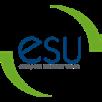

The European Association for International Education (EAIE) is a European centre for expertise, networking and resources in the internationalisation of higher education, founded in 1989. ESN and EAIE aim to establish a framework to promote and foster cooperation, through mutual promotion, events, exchange of expertise in favour of the student community involved in the activities and initiatives of two organisations.




eaie.org
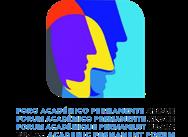


Institutional Partners EUF Coimbra Group UNIMED









The Coimbra Group (CG) is an international association of 41 universities in Europe. It works for the benefit of its members by promoting internationalisation, academic collaboration, excellence in learning and research, and service to society through “reating special academic and cultural ties, by lobbying at the European level, and by developing best-practice. ESN and Coimbra Group work together to address challenges related to student mobility, enhancing the quality of mobility programs, improving student support services, and ensuring equal opportunities for all students.

coimbra-group.eu

Mediterranean Univesities Union (UNIMED) is an association of universities from 23 countries on both shores of the Mediterranean whose aim is to develop university research and education in the Euro-Mediterranean area in order to contribute to academic cooperation. ESN and UNIMED signed a Memorandum of Understanding to work on the creation of a Mediterranean Erasmus Generation and to increase the collaboration between universities and student organisations from Europe, Northern Africa, and the Middle East.
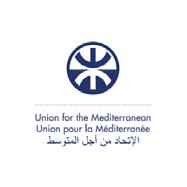
uni-med.net


EAIE 40 Annual Report 2022/2023
ESN & Public Funding EGIA SIEM
Contact our Director at director@esn.org if you are interested in a partnership with ESN for any grant or tender application.
ESN has participated in projects funded by the Erasmus+ Programme and some of its predecessor programmes for many years now. We benefit from two operating grants: one from the European Commission and one from the Council of Europe’s European Youth Foundation. We have had several annual “Work Plans” from the European Youth Foundation since 2016.
Furthermore, ESN has participated in several tenders covering topics such as impact of student mobility and digitalisation of the Erasmus+ Programme.
Other Projects
The Erasmus Generation in Action is, supported by the European Parliament and aims to raise awareness about EU opportunities and foster active citizenship among European youth. ESN is thrilled to be leading this ambitious project, which will include actions in 18 Member States and a total of 163 activities, 80 of which will be published at together.eu. The project will include a report on EU-supported opportunities, offer mobility promotion with two “Mov’in Europe” campaigns, and will include a platform that will summarise how students can vote while they are abroad.
Social Inclusion and Engagement in Mobility (SIEM) gathered evidence on the barriers for students from disadvantaged backgrounds to take part in international student mobility leading to a training and implementation phase in 2021-2022 that was aimed at ensuring better integration in their host community and stimulate interaction between international students and locals. The Erasmus Generation platform hosts the social impact measurement tool to assess the outreach of initiatives created by the Erasmus Generation.
Erasmus Careers Green Erasmus
The Green Erasmus project strives to improve the environmental sustainability of the Erasmus+ Programme and raise awareness across the European Higher Education sector about the importance of sustainable internationalisation. Green Erasmus will focus on developing an Educational Portal on Sustainable Internationalisation and carrying out comprehensive analysis of the environmental impact of Erasmus+ mobilities.
Measuring the impact of mobility abroad on students’ career development remains challenging and the support they receive from universities in identifying and assessing competences is modest. The Erasmus Careers project aims to ensure that the competencies gained on mobility are recognized by students and employers and contribute to the career prospects of Erasmus+ participants.
41 External Relations
• ASCOLA • WILLIAM • HOME • DigiUp • ECEM • OpenU • Compass
Commercial Partners





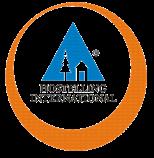






In ESN, we aim to improve student mobility in every possible way, one of which is cooperation with commercial stakeholders who offer unique benefits to international students through our membership card, the ESNcard.

Through cooperation with various companies, we focus on important areas of student life where we believe that students will benefit the most. The most important industries are travelling, accommodation and hospitality, online learning services, consumer goods, and other lifestyle-related activities (events and summer festivals).
The Economist

The Economist is an established partner that offers special deals for ESNcard members. This partnership helps equip students with the best analyses and articles on the latest trends to inspire their study projects, as well as offer reliable sources of information.

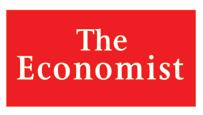
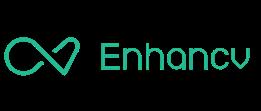
Flixbus & Flixtrain



With more than 3000 destinations in 40 countries, Flixbus and Flixtrain offer an affordable, convenient, and eco-friendly way to discover Europe. The partnership with Flixbus and Flixtrain helps make student mobility even more affordable with a special discount for ESNcard members, with increased discounts during the start of the academic year.
Pernod Ricard
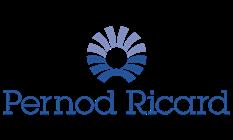

In 14 years of partnership with Pernod Ricard on the Responsible Party programme, we have managed to address several issues related to alcohol consumption and especially binge drinking amongst international students, with positive reactions from both students and European stakeholders.
Tomorrowland
Tomorrowland is world famous for uniting young people from all over the world under its festive spirit. Through the partnership, Tomorrowland organises a special gathering moment of the Erasmus Generation during the event, with special pre-sale access to the festival tickets.

42 Annual Report 2022/2023
Travelling
Moving around, be it within the city or visiting new sights and countries, is a big part of every student’s mobility experience. We work on making sure students can travel in the most affordable and sustainable ways. We partner with bicycle, bus, flight and train companies, like Donkey Republic, Flixbus, Flixtrain, Ryanair and major hostel providers such as Hostelling International. For quality travelling Tiqets provides special deals for museums, shows and a variety of cultural attractions all over the world.
Online Services
It is difficult to carry a lot of books when going on exchange. Our partnership with Perlego provides students with a discount on their subscription to Perlego’s online library which gives access to thousands of university books online. Discounts on bulb’s digital resume & portfolio, as well as EnhanCV, helps assist in writing the perfect CV and showcase skills and creativity. To help students with their international money transfer we are working with WISE.
Accommodation
When moving to a new country, finding a well-located, spacious and cheap home feels like a mission impossible to accomplish. We partner with accommodation providers like Spotahome and Milestone. Moreover, our partnership with Eurosender means that international students can get the most affordable offers with door-to-door shipping services to help them move all the items from one country to another.
Learning Opportunities
Our partnership with Rosetta Stone, Drops, iTalki, provides students with a unique opportunity for cultural exchange through language learning. This makes it easier for students to learn the language of their host country even before they move.
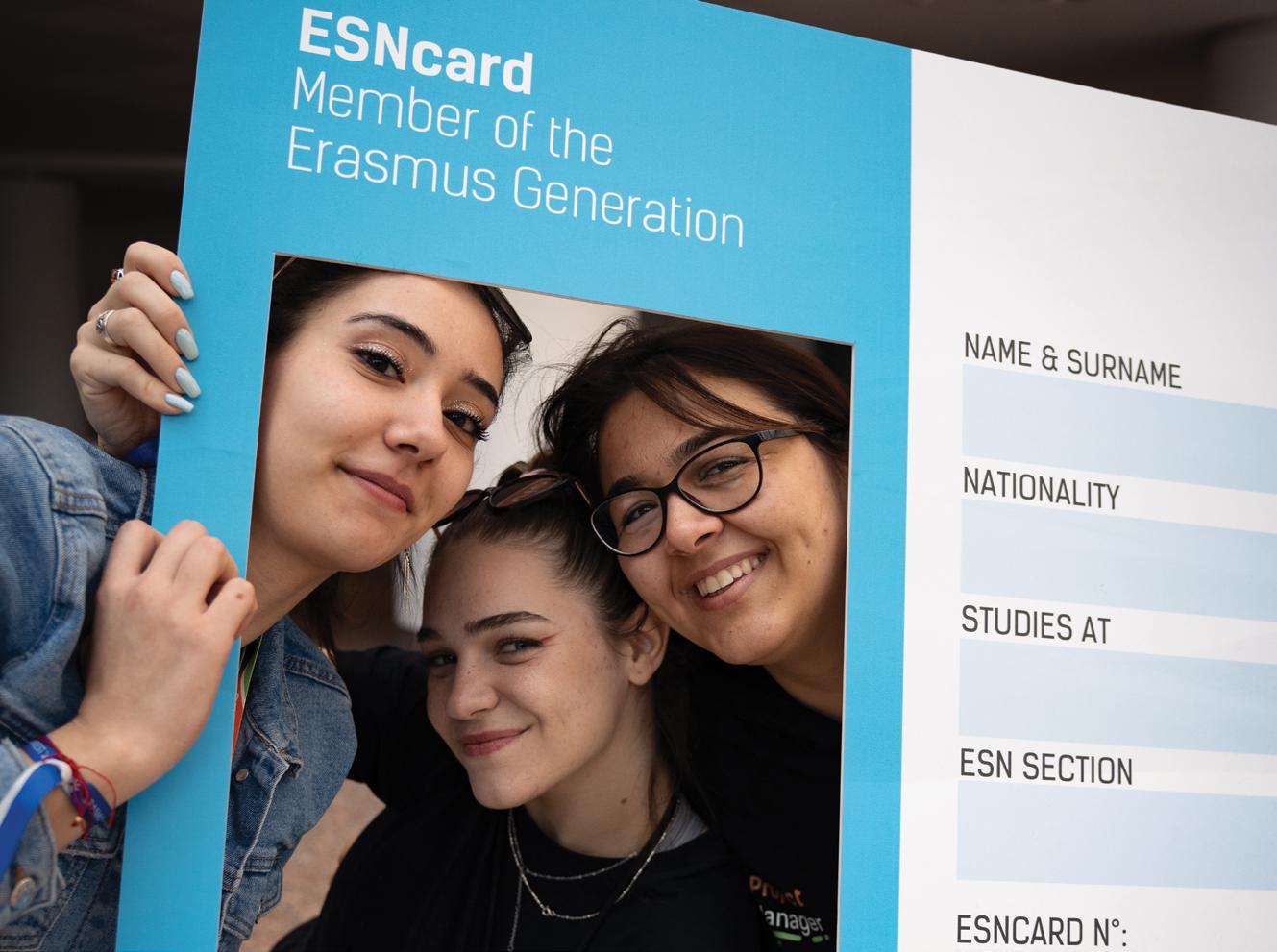
43 External Relations
Marketing Cooperation
Our marketing team has developed a diverse package of marketing activities to be offered to our partners. This includes visibility on our different platforms such as ESNcard.org, ESN.org, and Erasmusintern. org. The package also includes social media marketing on our various channels on Facebook, Instagram, Twitter and LinkedIn. These marketing activities are followed by Email marketing through our monthly newsletters. The newsletter of the Erasmus Generation is sent out to around 150,000 international students and interns every month and includes blog articles, updates on the most impactful activities of ESN, and a dedicated space for advertisement.
Partners can choose to be advertised in:
• Newsletter posts
• Top spot highlight
• Dedicated newsletters
• International events
Our partners have the opportunity to be promoted in major events such as the Erasmus Generation Meeting (EGM), an annual conference which focuses on international students and youth and includes a career and education fair. Events such as EGM or the International Erasmus Games bring together over a thousand participants each year, most of whom are young people with an international background.
Partners are also presented with the opportunity to attend national conferences and events organised by our members, which gather up to 2000 international students each, where they can connect with national representatives in a certain country and discuss local and national collaborations and cross-promotion opportunities.
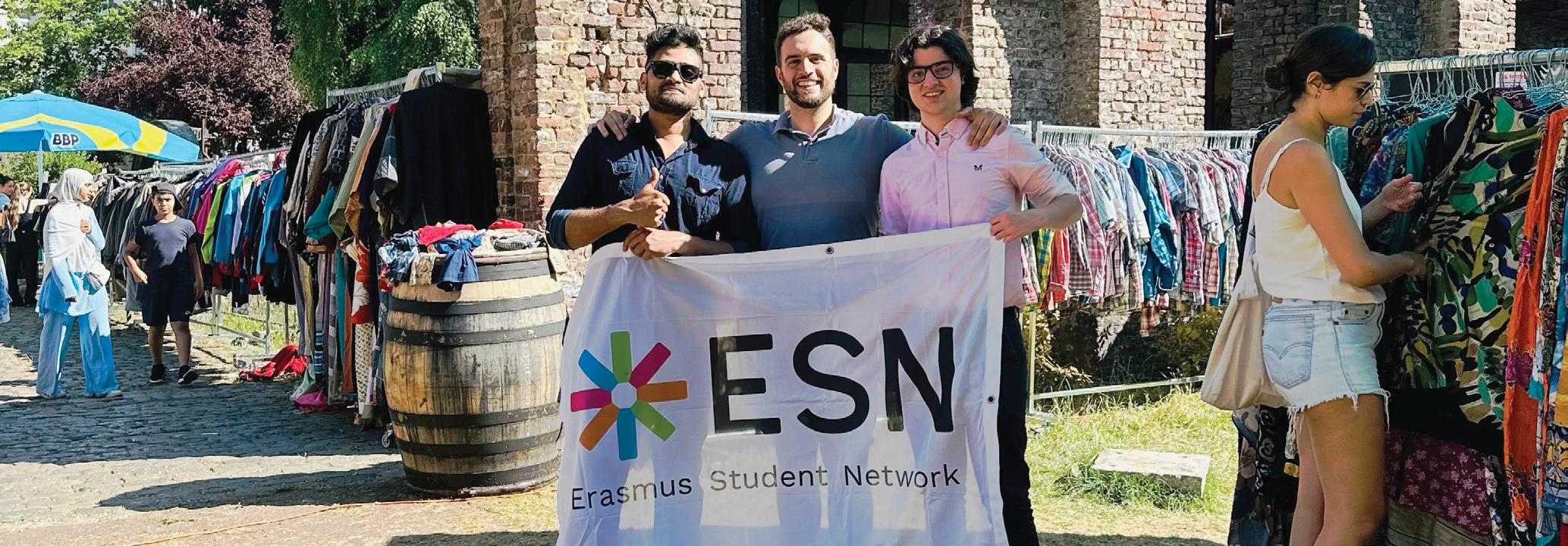
44 Annual Report 2022/2023
The collaborative efforts of our dedicated partners exemplify their strong alliance with our organisation and the students we serve. Their involvement not only enhances the overall experience but also fosters a sense of community among students, encouraging them to participate actively and benefit from the numerous opportunities available to them.
Our organisation highly values the active involvement of our esteemed partners in our initiatives. They not only serve as valuable promotional contributors but also play a significant role in the overall well-being of our students. Through careful selection, we have partnered with reputable companies that prioritise the welfare of Erasmus students in our vicinity. Our primary objective is to make a positive impact and ensure the utmost satisfaction for students embarking on their new educational journey.
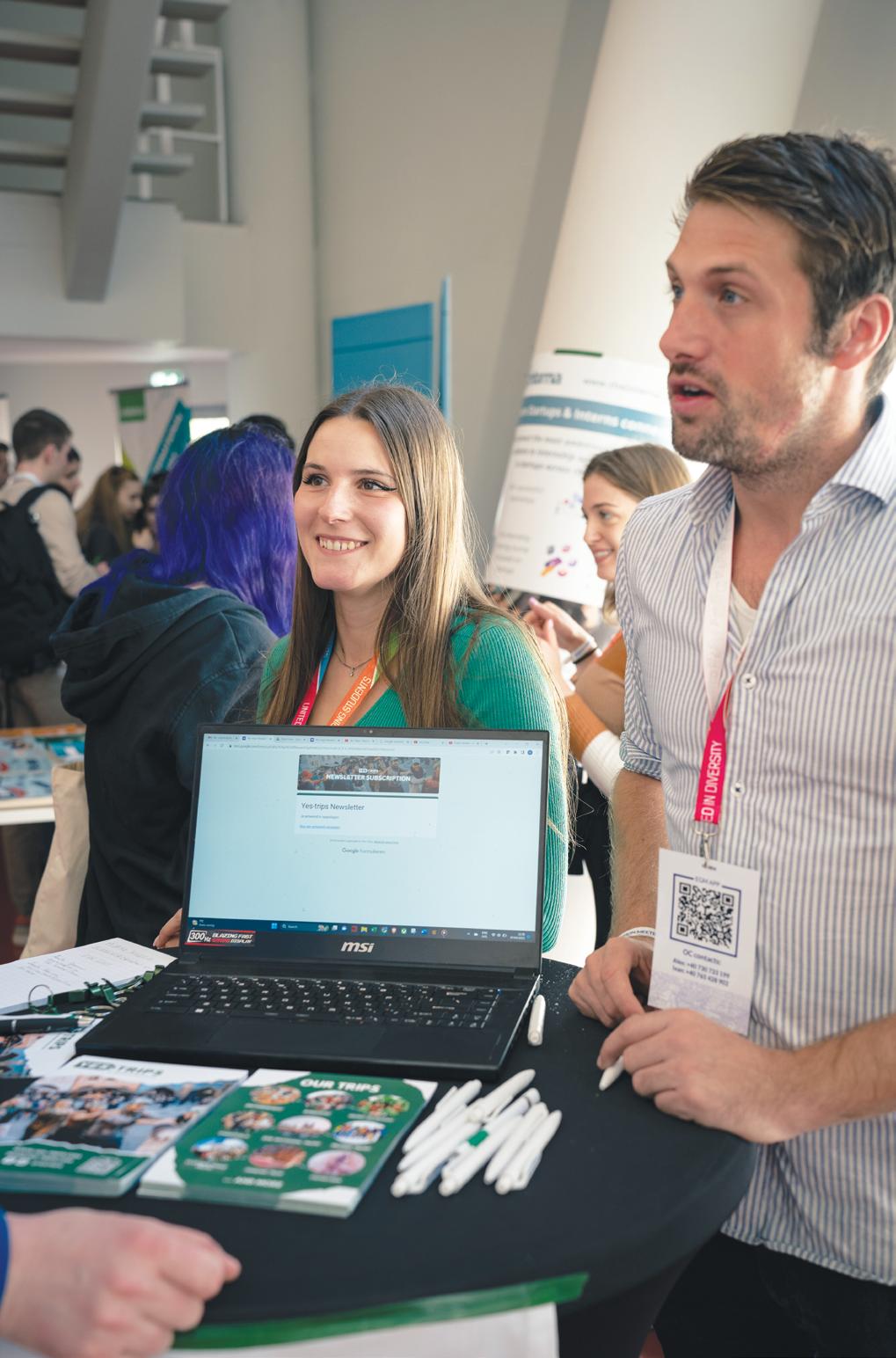
Partners such as FlixBus & FlixTrain and Spotahome exemplify their commitment to environmental stewardship. They actively participate in our Earth Day contest and other environmentally focused competitions, offering prizes that motivate students to engage and achieve remarkable results.
Another valued partner, Yes-Trips, stands alongside us in supporting students. They specialise in organising exceptional international trips, allowing students to explore various destinations comfortably in the company of like-minded individuals. Recently, they enthusiastically attended our Erasmus Generation Meeting, actively engaging in sessions and in a pleasantly surprising gesture, they conducted a spontaneous raffle, secretly awarding two fortunate winners with free trips to their upcoming event.
45
our Partnership Manager at partnership@esn.org if you are interested in a commercial collaboration with ESN International. External Relations
Contact
People

46 Annual Report 2022/2023
International Board 2022/2023


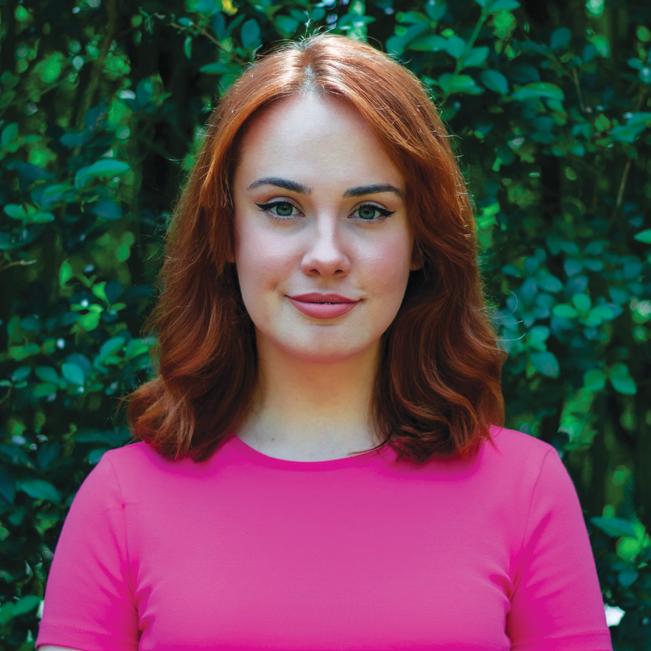
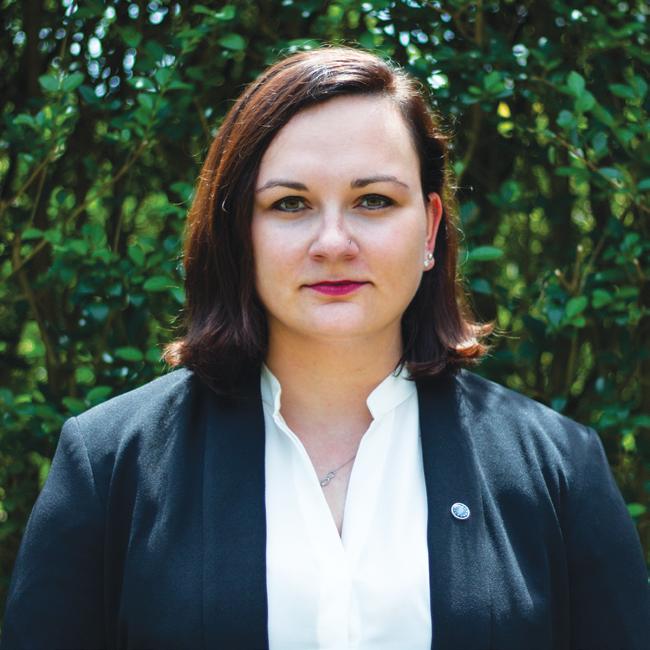

47 People
Juan Rayón González
Nikolina Đurić Ayberk Yavuz
Adél Smejkalová
President
Communication Manager Treasurer
Vice President for Development Bianca Stefan
Web Project Administrator
ESN Secretariat
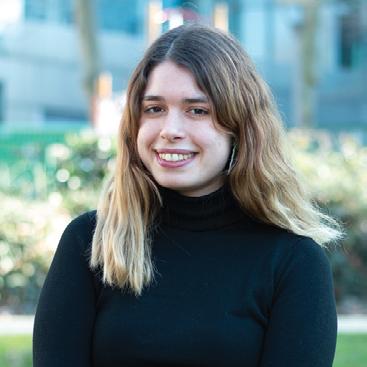
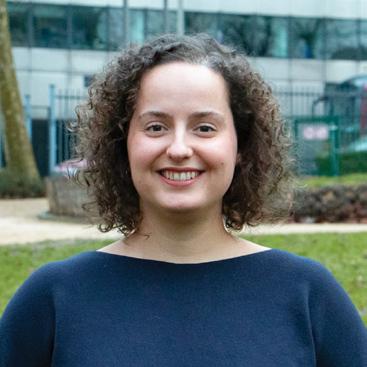

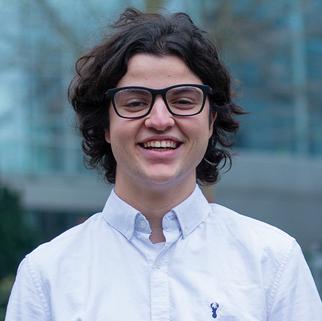
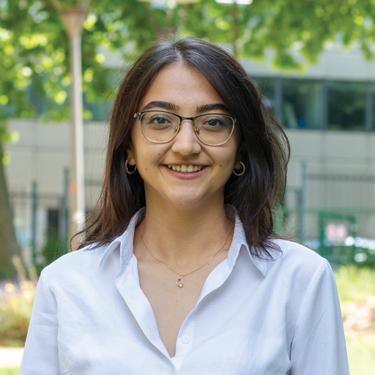
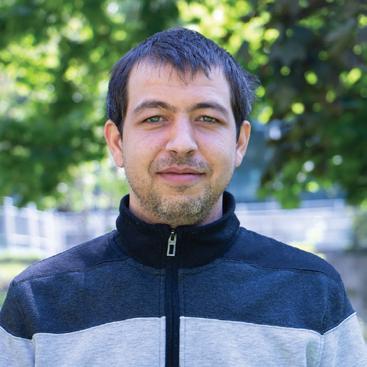
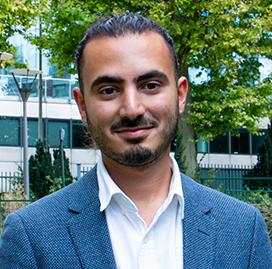
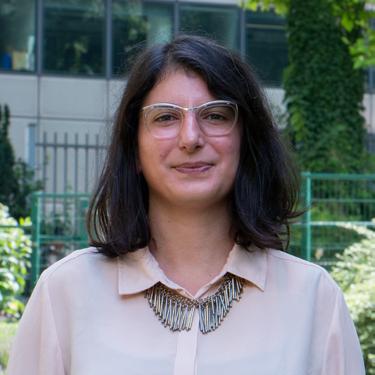
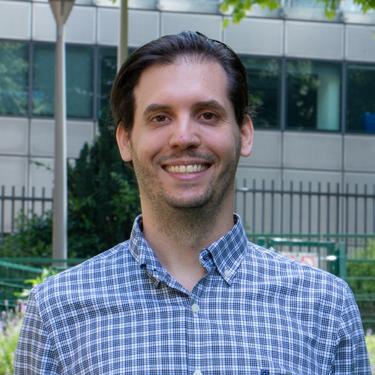
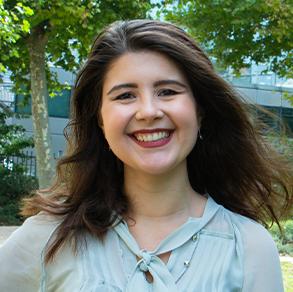



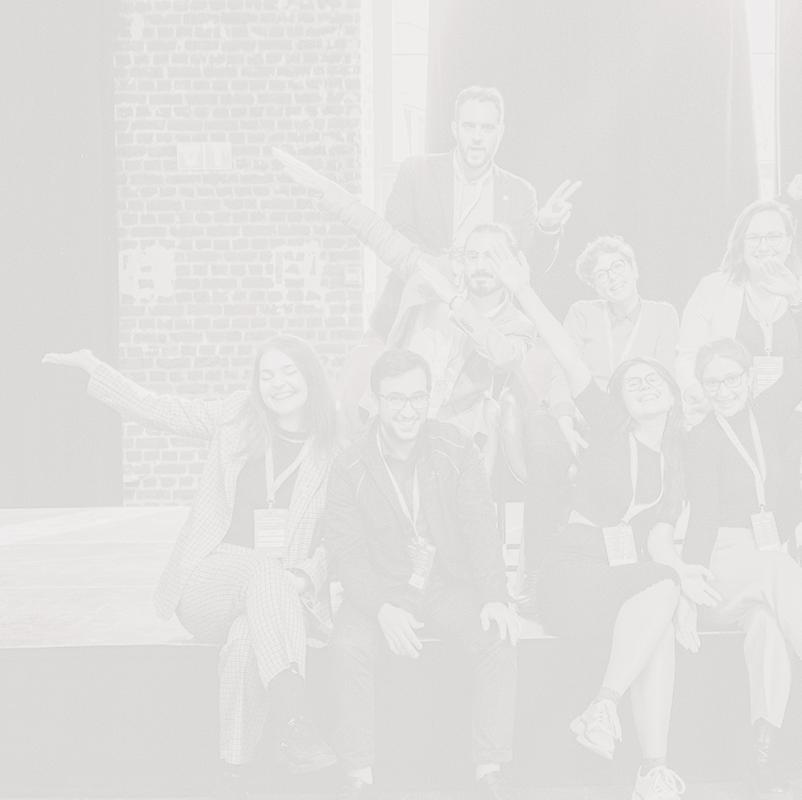
48 Annual Report 2022/2023
Wim Gabriels
Gorka Guerrero Sabri Ben Rommane
Annie Coleman
Selen Onur
Adam Shardob
Alexandre Devisscher Director Office Manager Partnership Manager
Paola Di Marzo
Communication Officer
Web Developer
Joana Campinas Giorgos Papaioannou
Céline Guérin Communication & Media Intern Events & Projects Coordinator
Project Officer Financial Officer
Web Developer
Melike Semercioğlu Communications Assistant Paul Sullivan Digital Marketing Intern Culture & Education Policy Assistant
International Board 2023/2024
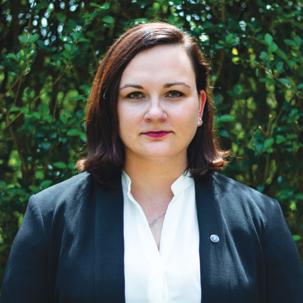
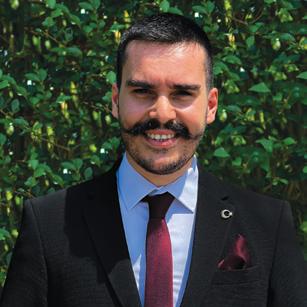
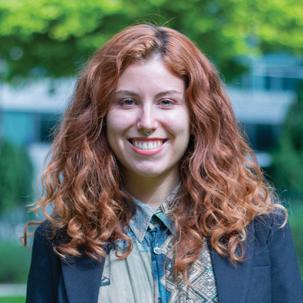
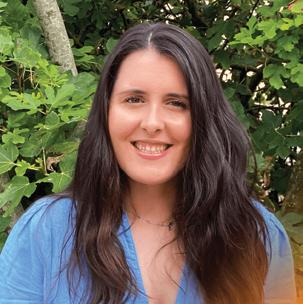
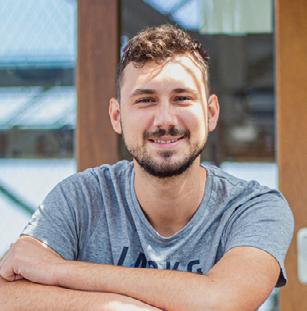




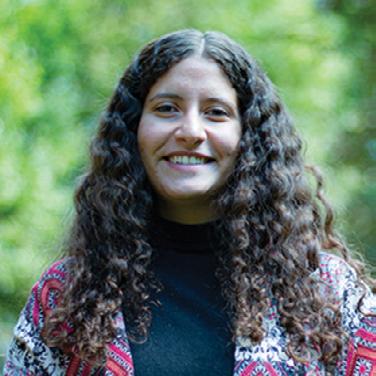
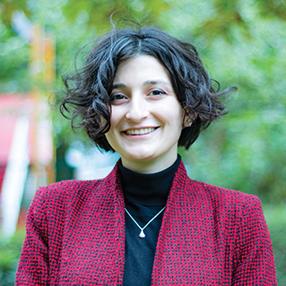
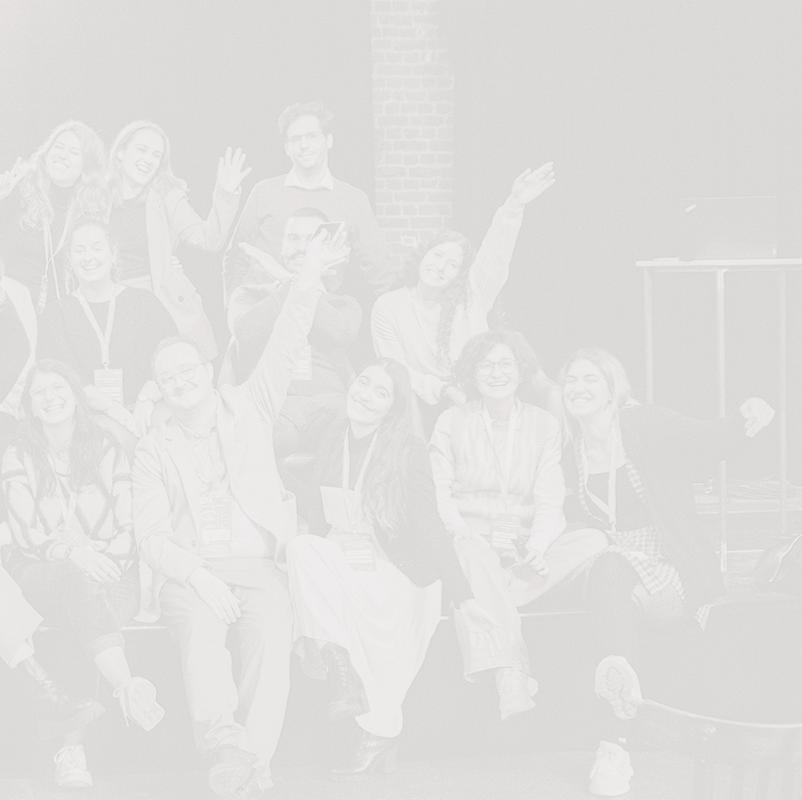 Diana Álvarez Former Communication & Media Intern Former Culture & Education Policy Assistant Former Digital Marketing Intern
Diana Álvarez Former Communication & Media Intern Former Culture & Education Policy Assistant Former Digital Marketing Intern
49 People
Gemma Good Anna Kowalczyk
Former Training & Development Assistant Former Culture & Education Policy Assistant
Miranda Betchvaia Alkistis Athanasopoulou
Giannis Pagoulatos Vice President-elect for Governance Communication Manager-elect
Lina Mohorić Web Project Administratorelect President-elect
Rita Dias
Darwyn Bruelemans
Ayberk Yavuz Treasurer Vice President for Development
Adél Smejkalová
Volunteers of ESN International
GA Chairing Team
Giovanni Telesca (Italy)
Kaja Kaczkiełło (Poland)
Matteo Carbone (Italy)
Liaison Officers
liaison@esn.org
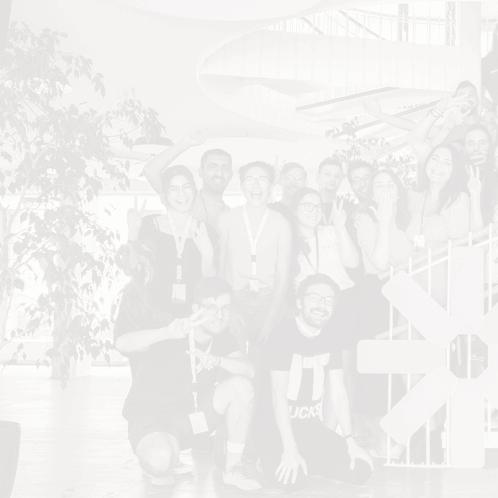
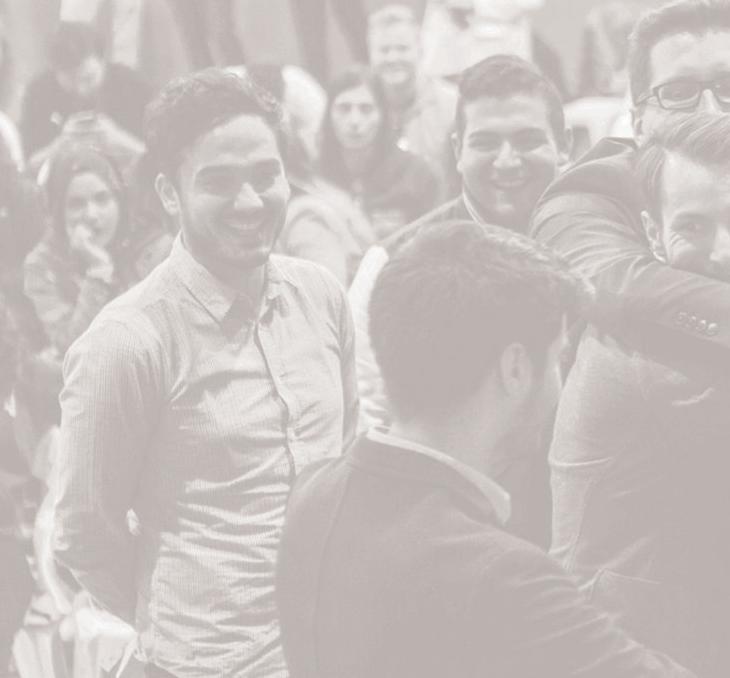
Neli Kalinova (Bulgaria)
Sara Tagliabracci
Rita Dias (Portugal)
Olivia Parczyk (Germany)
Yassin Khalil (UK)
Salome Keshelashvili (Georgia)
Adessa Zadia (Greece)
Evgenii Puchkov (Russia)
Iva Ljubičić (Croatia)
Zrinka Trusic (Croatia)
Martina Bo (Italy)
Giorgos Papaioannou (Greece)
Audit Commission
Gernot Pruschak (Austria)
Nils Grunder (Switzerland)
Yoanna Bogdanova (Bulgaria)
Legal Team
Evgenii Puchkov (Russia)
Adrianna Skolimowska (Poland)
Internal Audit Team
Teodora Kolak (Croatia)
Raphaël Radzuwei (Switzerland)
Borja Izquierdo (Spain)
Arbitration Board
Marinos Savva (The Netherlands)
Aileen van der Veeke (The Netherlands)
Filipe Marques (Portugal)
HR Manager
Anja Miljković (Croatia)
International Committees
Chairing Teams
International Committee for Education
Konstantina Kyriakou (Greece)
Maria Patrikeeva (Russia)
Network Committee
Ivalina Valchanova (Bulgaria)
Carla Stancanelli (Italy)
Alexandra Cucu (Romania)
Communication Committee
Michaela Horníková (Czech Republic)
Sarah Expósito Regaigne (France)
Diego Traver Larraz (Spain)
IT Committee
Patrick Moraru (Romania)
Diana Rotescu (Romania)
International Teams
ESNsurvey 2023 Team
Siem Buseyne (Belgium)
Daria Zaikovskaia (Finland)
Yazeed Haddad (Estonia)
Kevin Topi (Albania)
Ángel Pérez Contreras (Spain)
Luca Mistretta (Italy)
Christie Dear (UK)
Eduk8 Team 2022
Tereza Kadlecová (Czech Republic)
Gabriel Rodrigues (Portugal)
Katerina Antonakou (Greece)
Julia Kostrzewa (Poland)
Eduk8 Team 2023
Marta Ejsmont (Poland)
Gabriel Rodrigues (Portugal)
Katerina Antonakou (Greece)
Lilit Sargsyan (Armenia)
ESNcard
Luís Ribeiro Henriques (Germany)
Kerem Pişkin (Turkey)
Barbara Medenica (The Netherlands)
Mark McGee (Ireland)
Mahdi Esmaeili (Turkey)
Luka Rendulić (Croatia)
International Erasmus Games
Francisco Forte (Porgual)
Carlos Robledo Martin (Spain)
Angel Perez (Spain)
Social Impact Team
Rareş Gherasim (Romania)
Paulina Bednarek (Poland)
Betül Sare Altaş (Turkey)
Jakub Steinbach (Czech Republic)
50 Annual Report 2022/2023
IT Contributors
Matteo Carbone (Italy)
Ricardo Bento (Portugal)
Darwyn Bruelemans (Belgium)
Dimitris Kritsotakis (Greece)
Diana Rotescu (Romania)
Gonçalo Tavares (Portugal)
Network Care Team
Regional Coordinators
Lise Benette Hovd (Norway)
Alex Pieptea (Romania)
Alvaro Mira (Spain)
Sofia Mediavilla Madrigal (UK)
Regional Training Coordinators
Tereza Simou (Greece)
Flora Szabo (Denmark)
Dora David (Romania)
Nicolas Landino (France)
Hannah Pothhoff (Germany)
Education Community Manager
Pedro González (Germany)
HR and Network Community Manager

Lucci Varenina (Croatia)
Training & Activities Community Manager

Sara Vrban (Croatia)
BFC Community Manager
Bora Fidan (The Netherlands)
Communication Community Manager
Ivona Galić (The Netherlands)
IT Community Manager
Darwyn Bruelemans (Belgium)
Membership Team
Giannis Pagoulatos (Greece)
Iona Murdoch (UK)
Leonor Alcaçarenho (Portugal)
Alice Buonaguidi (Italy)
Alkistis Athanasopoulou (Greece)
Anna Demiri (Greece)
Jana Borchardt (Germany)
Una Galečić (Serbia)
Nicolás Ladino Camargo (France)
Patrick Peek (Germany)
Daniela Baciu (Romania)
Alessio Burlon (Italy)
Giovanni D’Amico (Italy)
Justin Racu (Bulgaria)
Madlen Vaseva (Bulgaria)
Joel Castro (Portugal)
Margarida Sena (Portugal)
Alexandra Cojocaru (Romania)
Luís Ribeiro Henriques (Germany)
Evangelos Katsaros (Greece)
Erasmus Generation Meeting
EGM Content Team
Sara Lourenço (Portugal)
Dora David (Romania)
Sofia da Costa (Portugal)
Manuel Reyes (Spain)
Ricardo Bento (Portugal)
EGM Media Team
Lina Mohorić (Croatia)
Joana Campinas (Portugal)
Paulina Bednarek (Poland)
Ivona Galić (The Netherlands)
Pit Albert (The Netherlands)
Elia Maracani (Italy)
Léa Nelissen (Belgium)
Gemma Good (Ireland)
Ángel Pérez (Spain)
EGM Advisory Team
Alvaro Mira (Spain)
Ana Vilhena (Portugal)
Rodrigo Gomes (Portugal)
Mariana Rebelo (Portugal)
Beatriz Lamy (Portugal)
Leonor Alcaçarenho (Portugal)
Nadja Jovičin (Serbia)
Simon Schwientek (Germany)
51 People
National Organisations

ESN Albania albania@esn.org

ESN Armenia armenia@esn.org

ESN Austria austria@esn.org
ESN Azerbaijan azer baijan@esn.org
ESN Belgium belgium@esn.org
ESN Bosnia and Herzegovina bih@esn.org
ESN Bulgaria bulgaria@esn.org
ESN Croatia croatia@esn.org
ESN Cyprus cyprus@esn.org
ESN Czech Republic czech_republic@esn.org
ESN Denmark denmark@esn.org
ESN Estonia estonia@esn.org
ESN Finland finland@esn.org
ESN France france@esn.org
ESN Georgia georgia@esn.org
ESN Germany germany@esn.org
ESN Greece greece@esn.org
ESN Hungary hungary@esn.org
ESN Ireland ireland@esn.org
ESN Italy italy@esn.org
ESN Kazakhstan kazakhstan@esn.org

ESN Latvia latvia@esn.org
ESN Liechtenstein liechtenstein@esn.org
ESN Lithuania lithuania@esn.org
ESN Luxembourg luxembourg@esn.org
ESN Malta malta@esn.org
ESN Moldova moldova@esn.org
ESN Montenegro montenegro@esn.org
ESN the Netherlands netherlands@esn.org
ESN North Macedonia northmacedonia@esn.org
ESN Norway norway@esn.org
ESN Poland poland@esn.org
ESN Portugal portugal@esn.org
ESN Romania romania@esn.org

ESN Russia russia@esn.org
ESN Serbia serbia@esn.org
ESN Slovakia slovakia@esn.org
ESN Slovenia slovenia@esn.org
ESN Spain spain@esn.org
ESN Sweden sweden@esn.org
ESN Switzerland switzerland@esn.org

ESN Turkey turkey@esn.org
ESN Ukraine ukraine@esn.org
ESN United Kingdom uk@esn.org

52 Annual Report 2022/2023
This information can be freely used and copied for non-commercial purposes, provided that the source is acknowledged.
(© Erasmus Student Network)
For ordering additional copies of the publication, please contact secretariat@esn.org
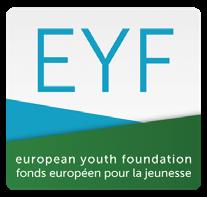
The digital version of this report is available on esn.org

Erasmus Student Network has been supported by the European Commission and the Council of Europe. This publication reflects the views only of the author, the Commission and the Council of Europe cannot be held responsible for any use which may be made of the information contained therein.
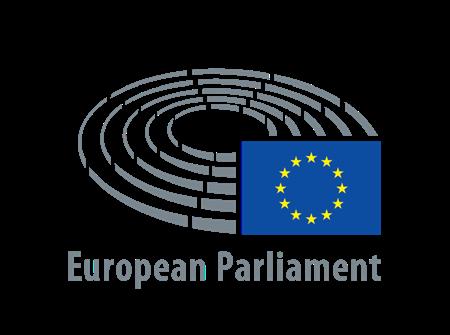


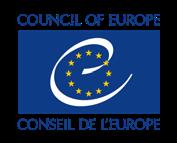

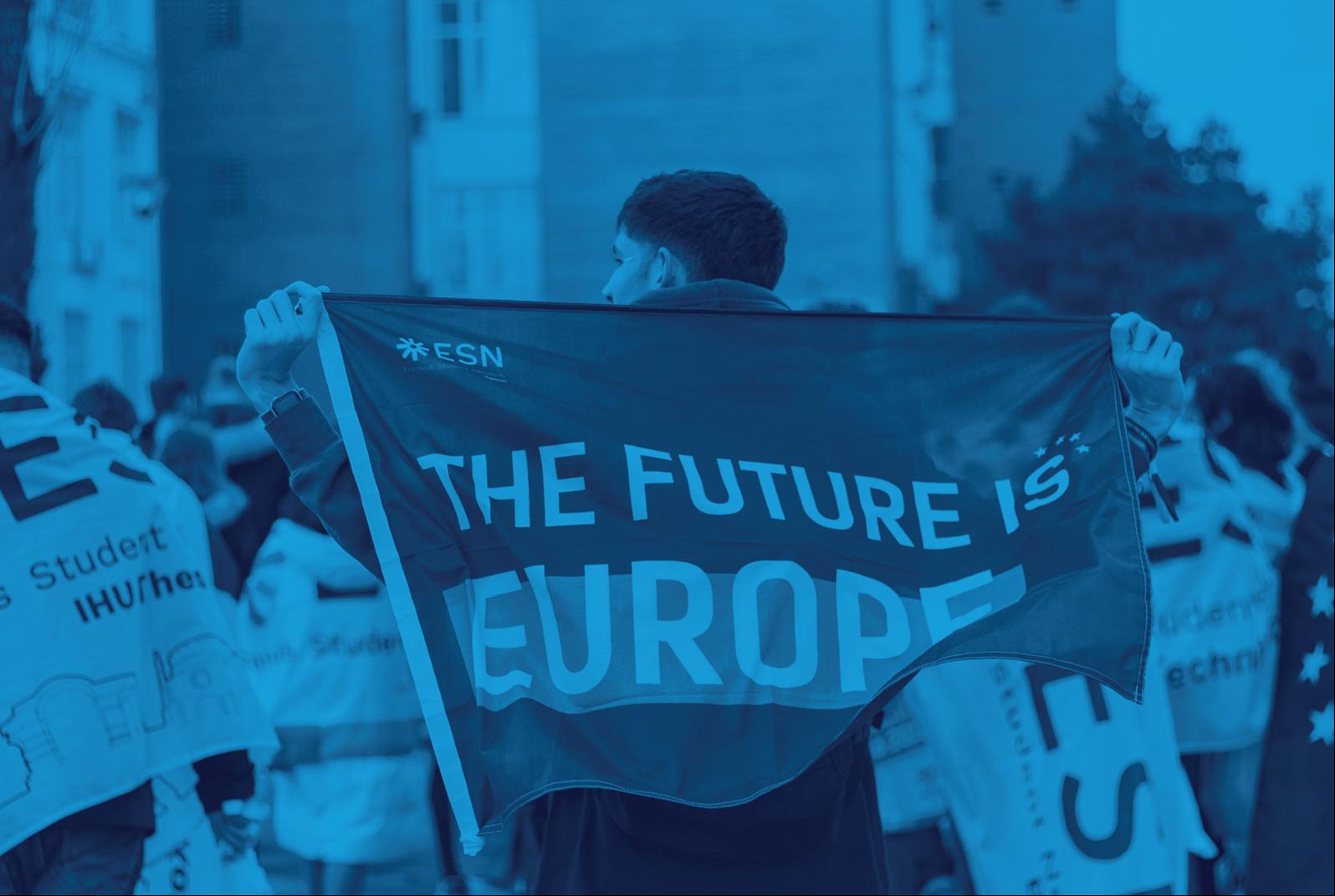































































































































 Diana Álvarez Former Communication & Media Intern Former Culture & Education Policy Assistant Former Digital Marketing Intern
Diana Álvarez Former Communication & Media Intern Former Culture & Education Policy Assistant Former Digital Marketing Intern


















